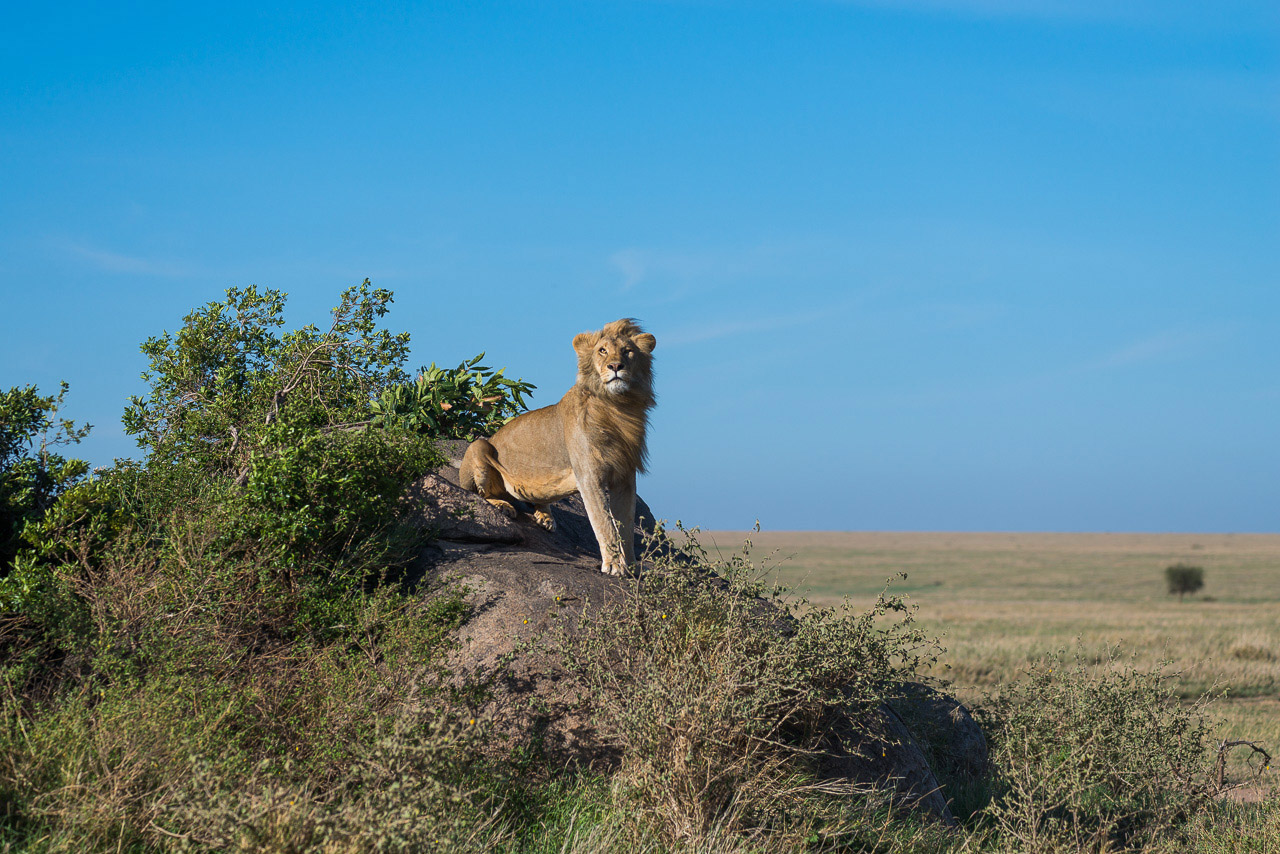

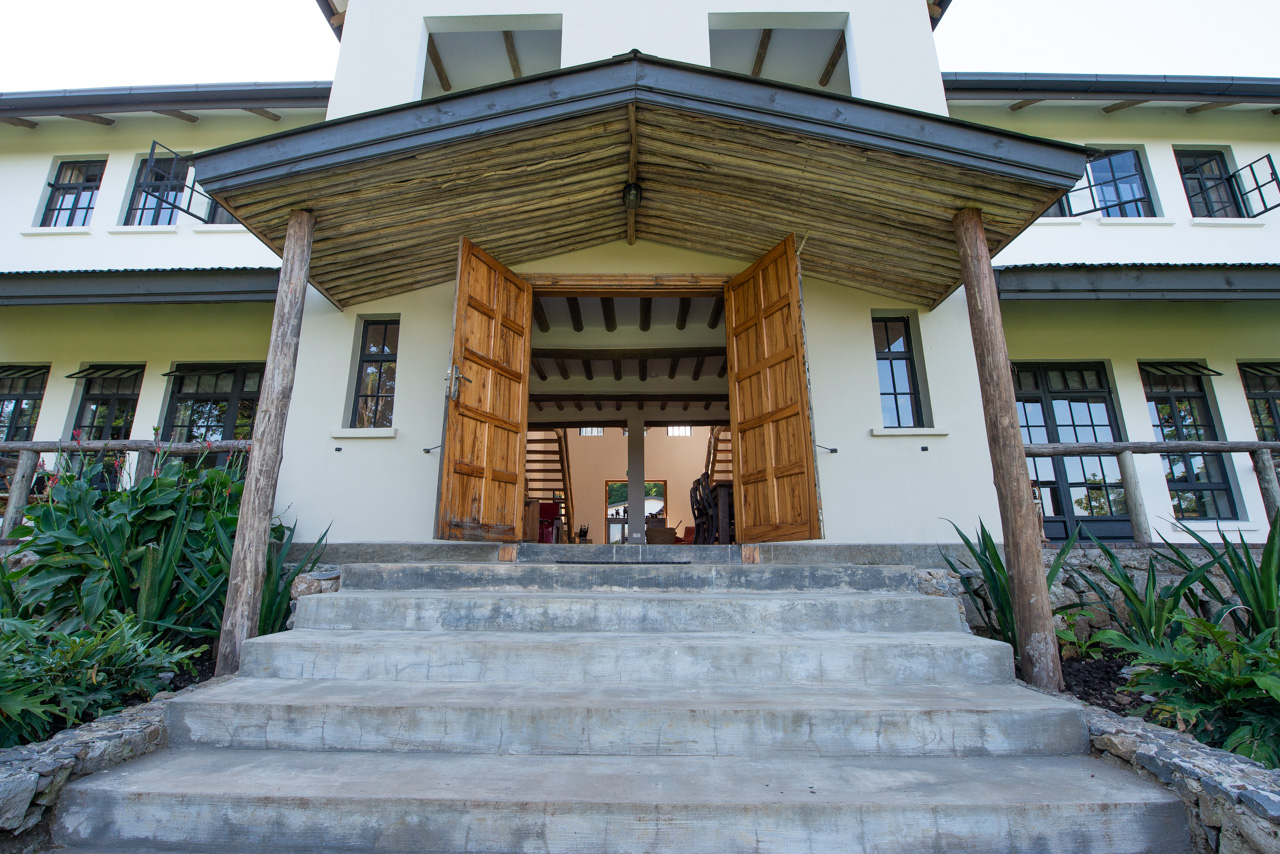
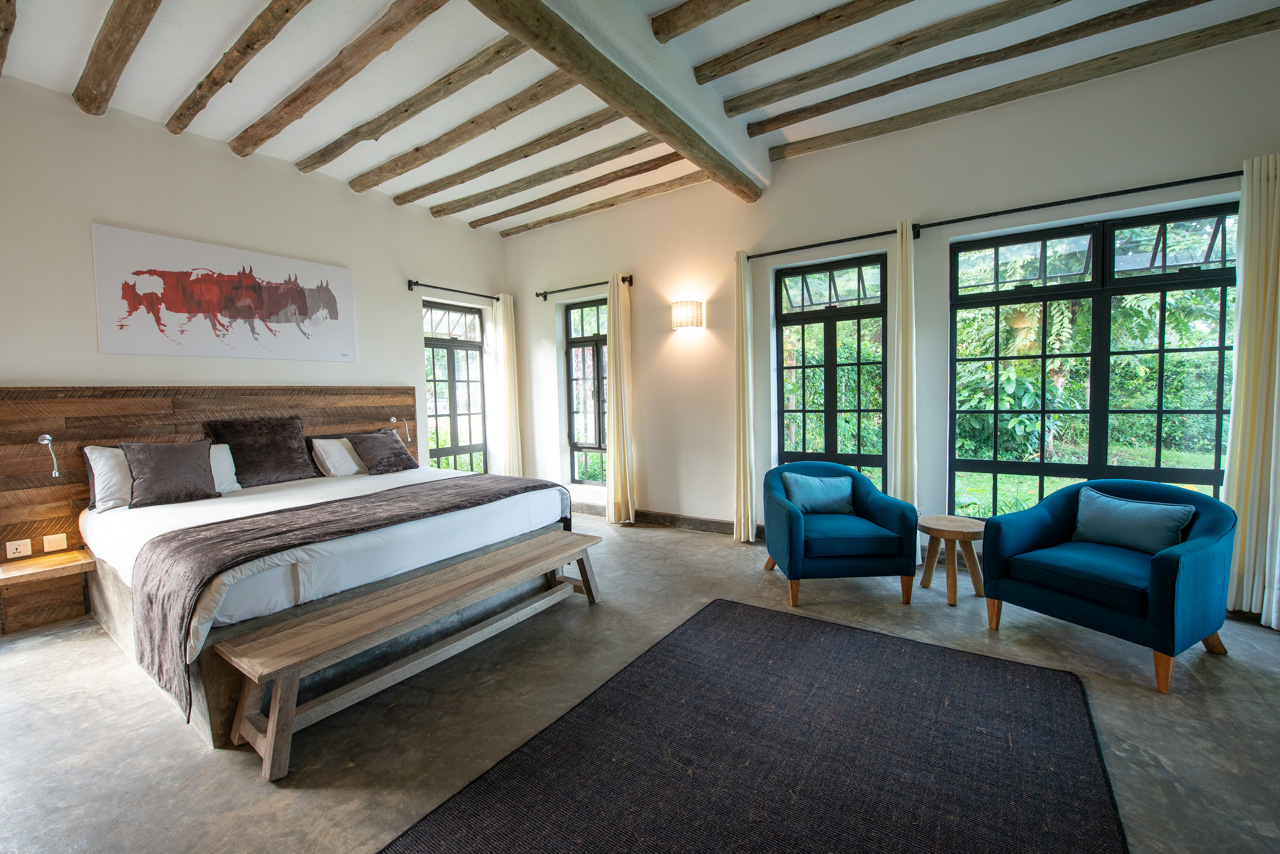
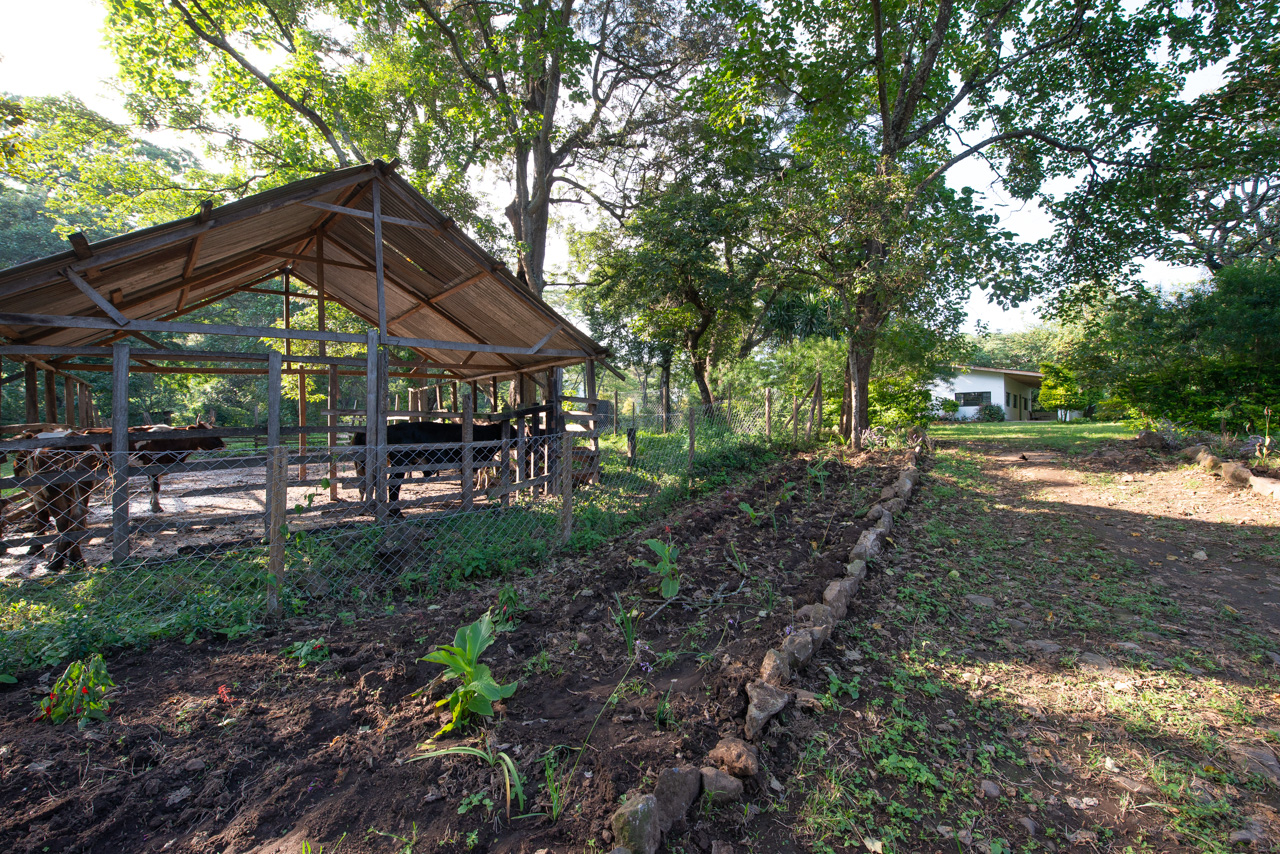
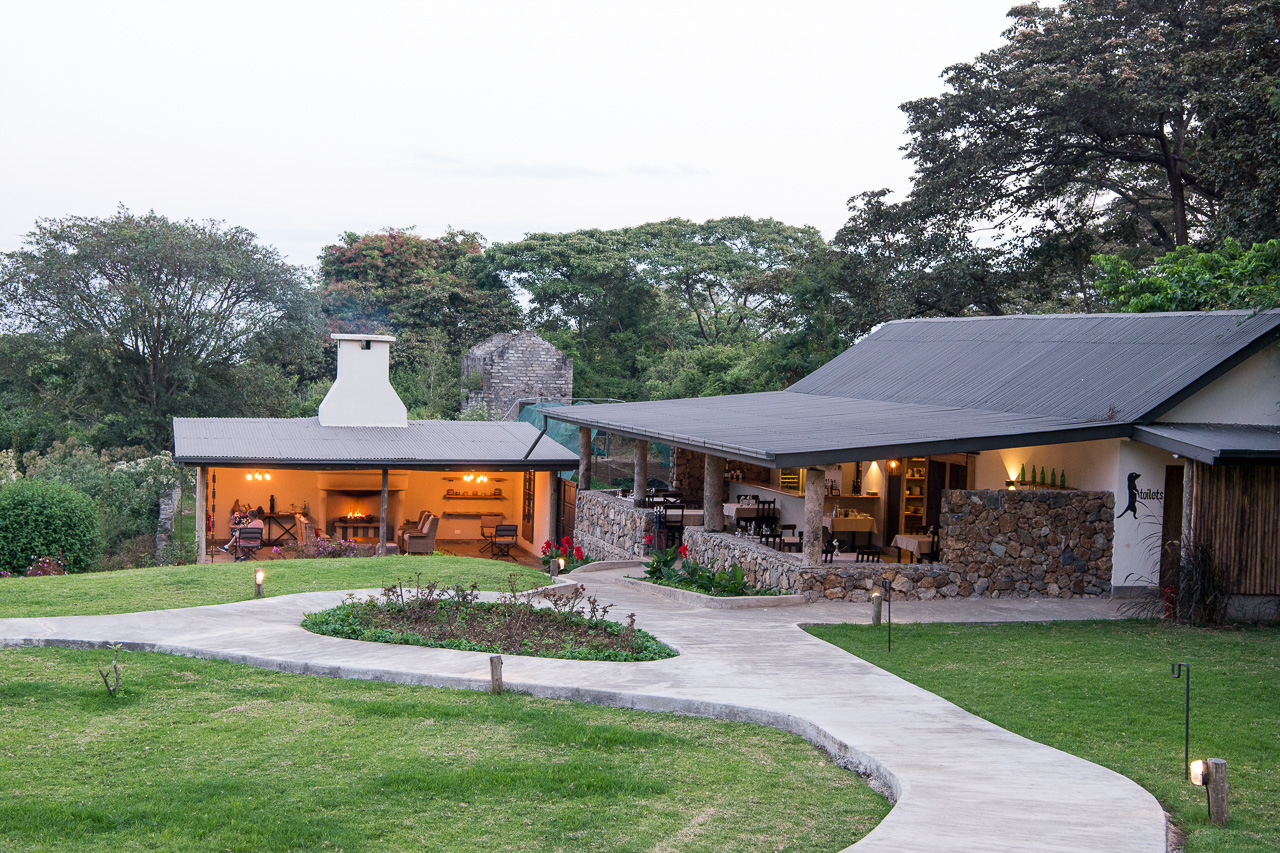
Accommodation
The six luxurious rooms and two family rooms of the Arusha Villa are set in a beautiful garden with Mount Meru and Mount Kilimanjaro in the background. The spacious rooms have en-suite bathrooms, king-size beds, a sitting area and a private balcony or terrace.
Arusha Villa was originally a coffee roastery. In the garden elements from this time are still recognizable, for example around the pool, where in earlier days the coffee beans were washed. The beautiful garden overlooking the countryside invites you to rest in the sun. With a little luck, you‘ll even spot a Colobus Monkey in the treetops.
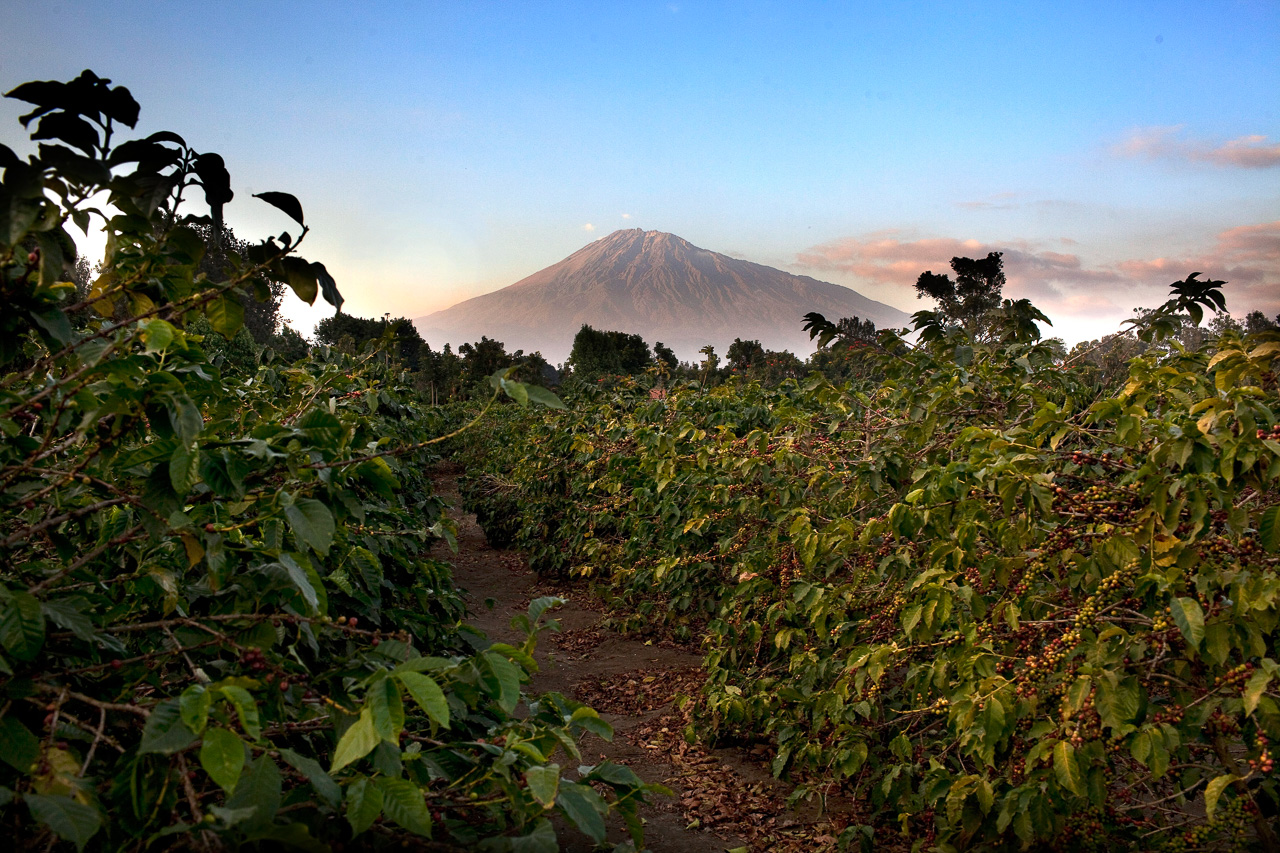
Most visitors spend one night here after arriving on their international flight before beginning their safari the next day. Kilimanjaro International Airport is located approximately one hours’ drive from Arusha on the road cmoing in from Moshi.
Arusha's most famous landmark is Mount Meru, a dormant volcano that rises more than 4,500 m out of the ground in the west. The Ngurdoto Crater is located on the other side of the park, and the Momella Lakes sit between.
Arusha itself has grown considerably in recent years and there are probably around 650,000 people living in the city. The population has increased tenfold since the 1970s! In addition to tourism, Arusha lives from the trade in coffee and agricultural products and also increasingly from the export of cut flowers. Arusha lies at an altitude of 1,400 meters above sea level and the climate is quite pleasant with an average temperature of around 25° Celsius.
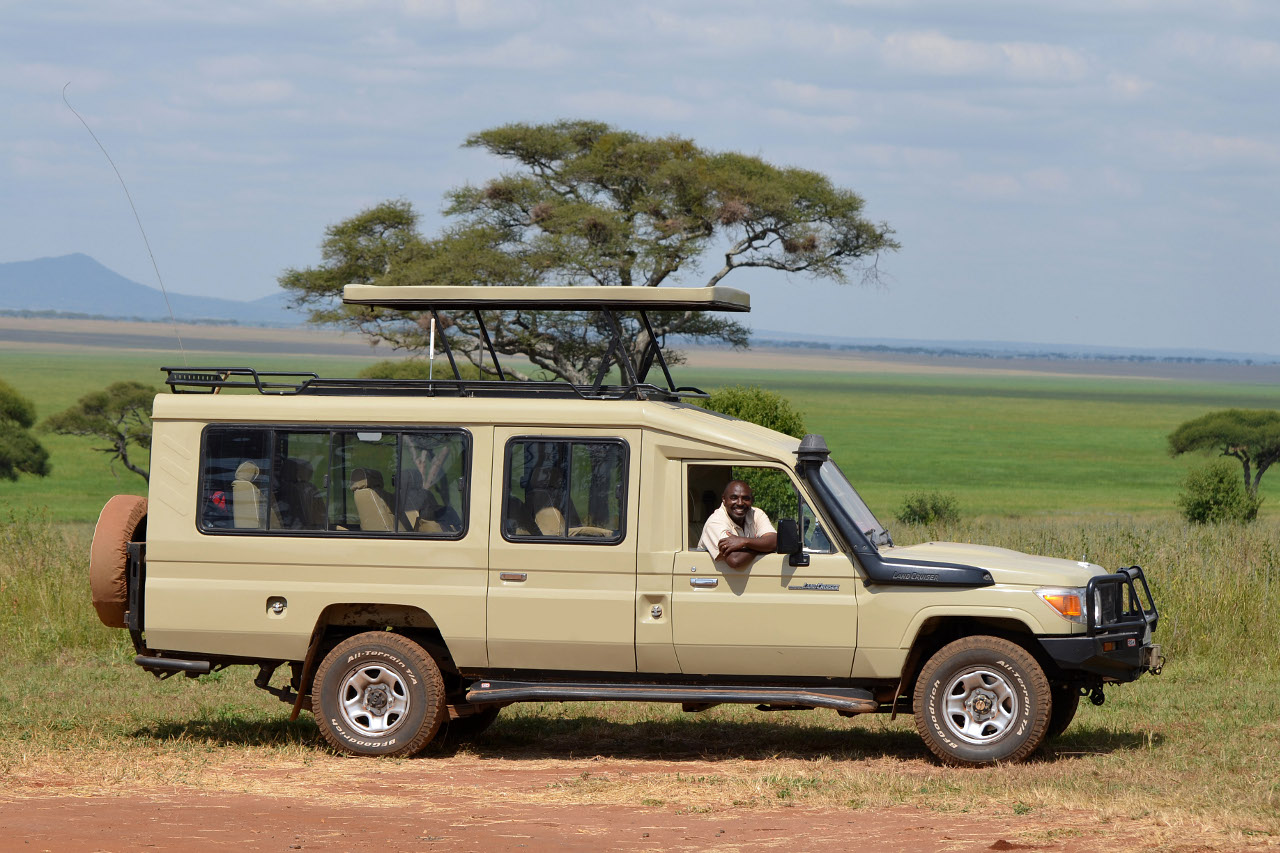
The comfortable Toyota LandCruiser 4 x 4 vehicles usually have six seats, a fridge with drinking water and a socket for charging camera equipment. The roof can be opened for game viewing - the classic safari in Tanzania.

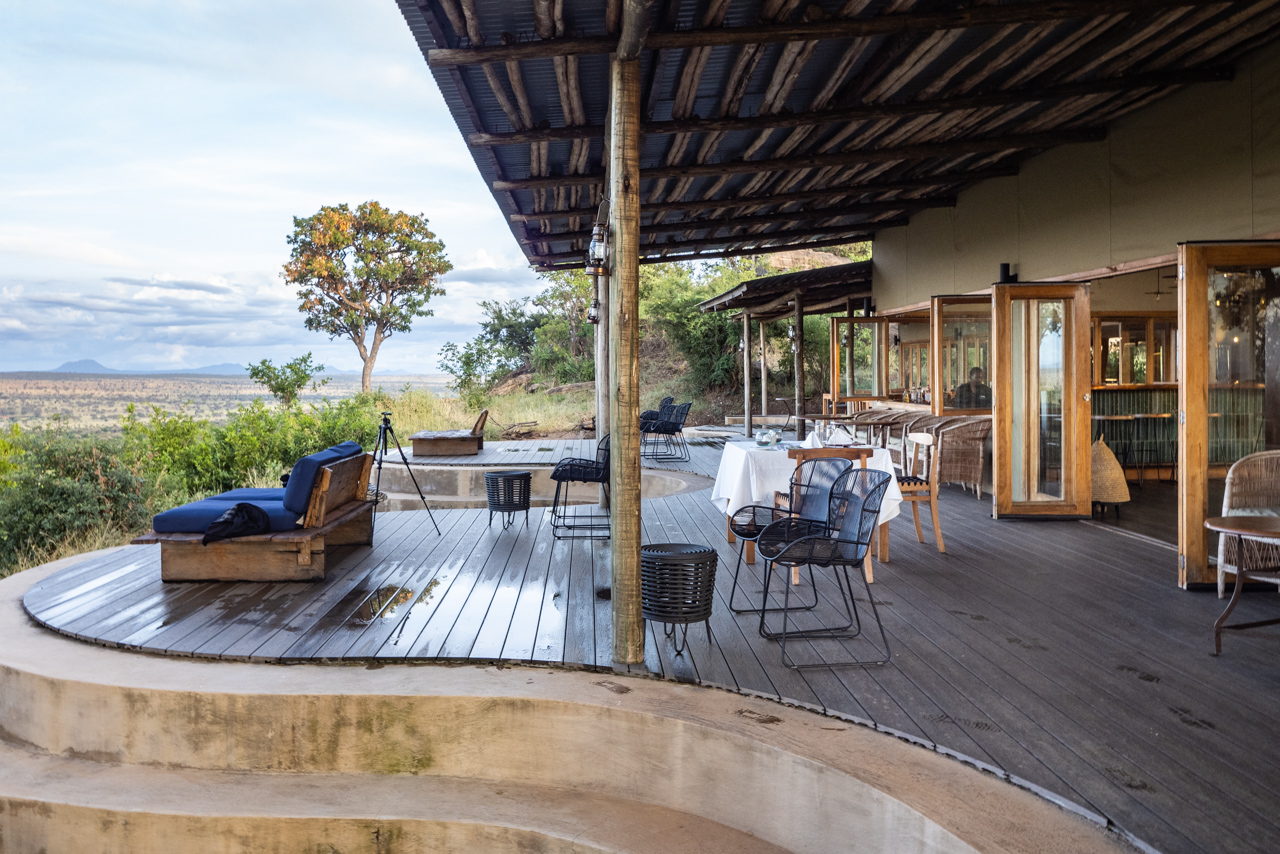
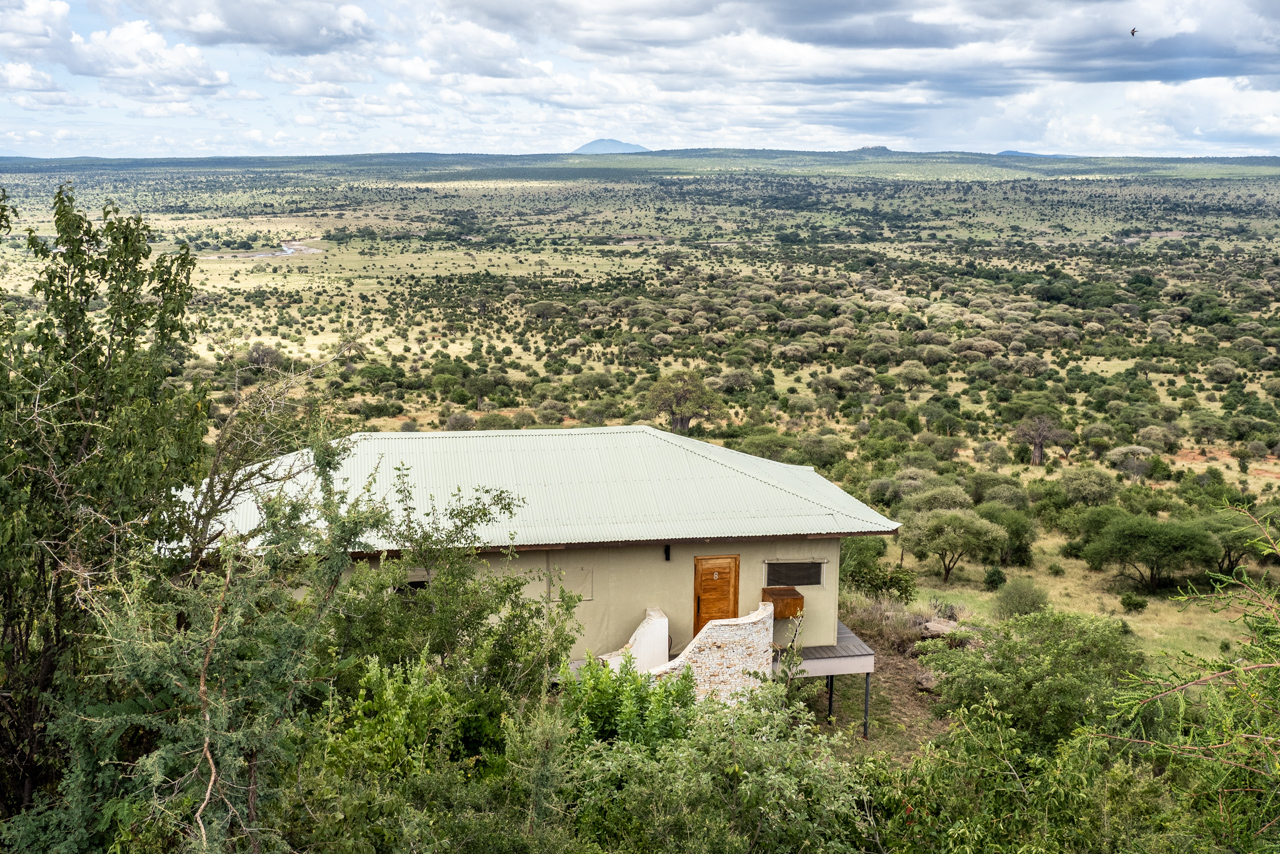
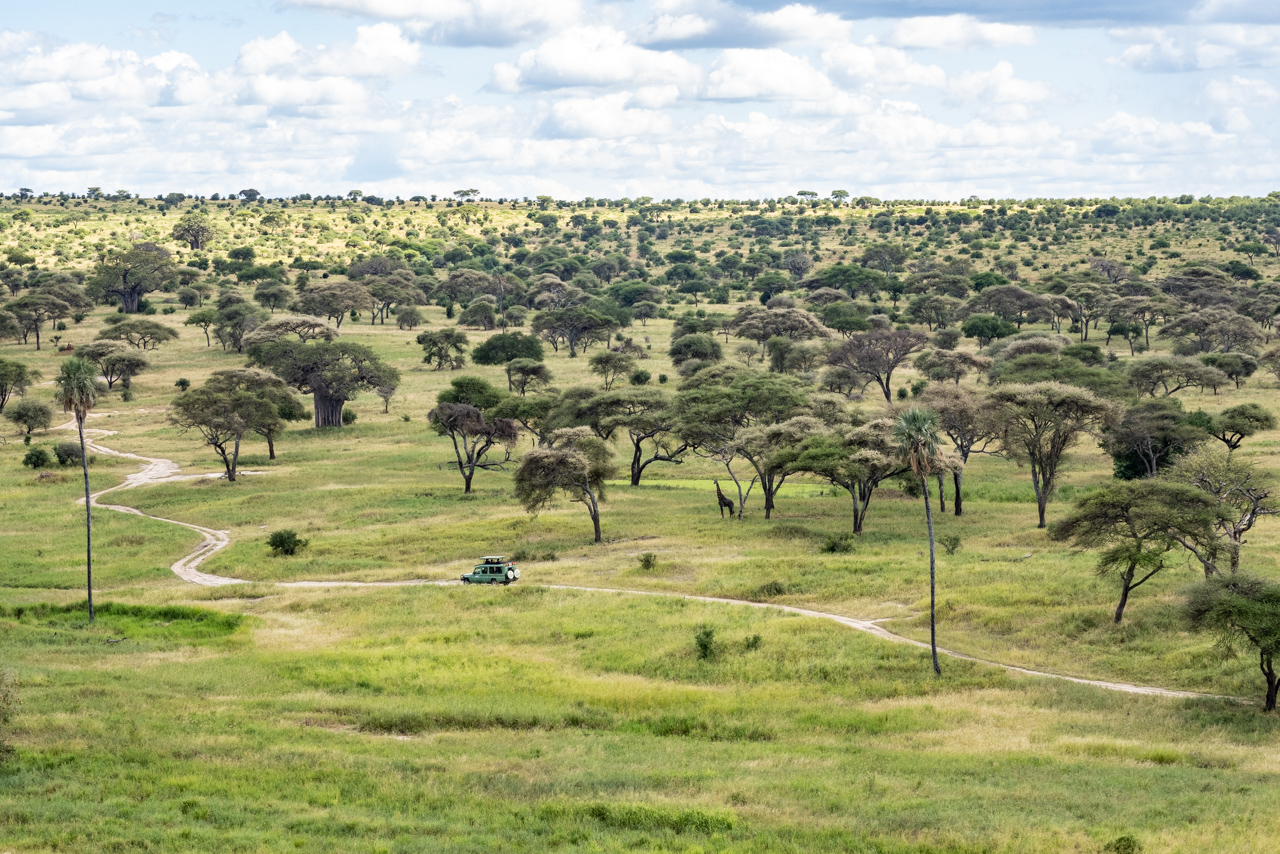
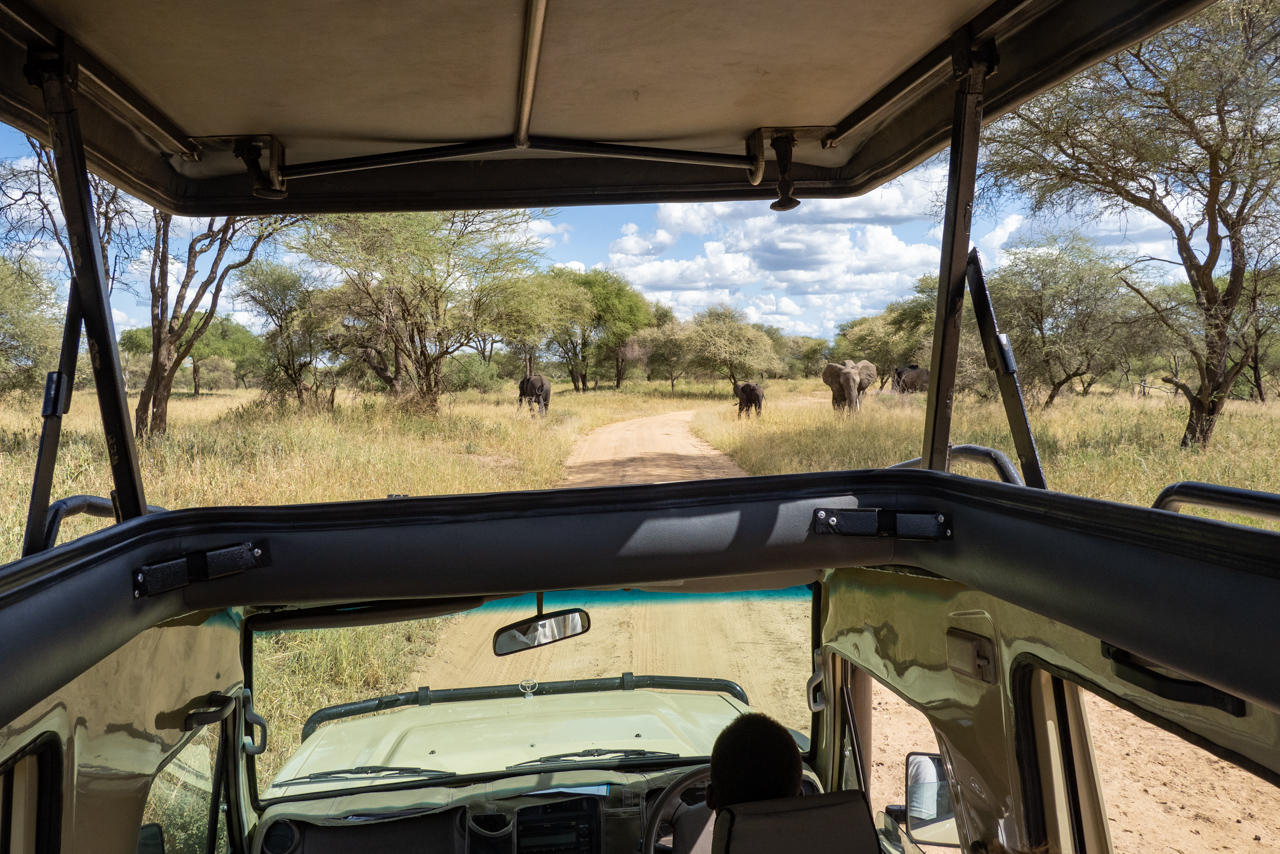
Accommodation
Situated on top of an escarpment west of the Tarangire River, Mpingo Ridge Lodge delights its guests with sweeping views accross the perennial river as it winds across the seemingly endless plains of the national park.
The fourteen tented suites feature a spacious terrace with a sunken lounge and an outdoor bathtub. The suite is equipped with a lounge area, double or twin beds, a desk with power outlets, coffee/tea station and a safe. At the same time, the bathroom again has a shower and a bathtub, a double washbasin and a separate toilet. One of the suites has two bedrooms and bathrooms for families or friends traveling together.
In the central main building everything takes place on the outdoor terrace where you hardly want to take your eyes off the panorama. The lovely barman has extraordinary ideas for sundowner drinks, fresh à la carte menus are served and the Maasai Askari lights an evening campfire. A little off the terrace is the swimming pool, which is large enough to swim sporty lengths and the spa team is happy to relax your stiff muscles.
Mpingo Ridge is situated inside the National Park, in the central part of Tarangire National Park. The location of the camp provides guests with the unique opportunity to witness wildlife and explore the natural beauty of Tarangire National Park right from the start of their safari. Camps that are located outside the park need to pass the main gate each and every time they access the park, which minors the safari experience in our opinion.
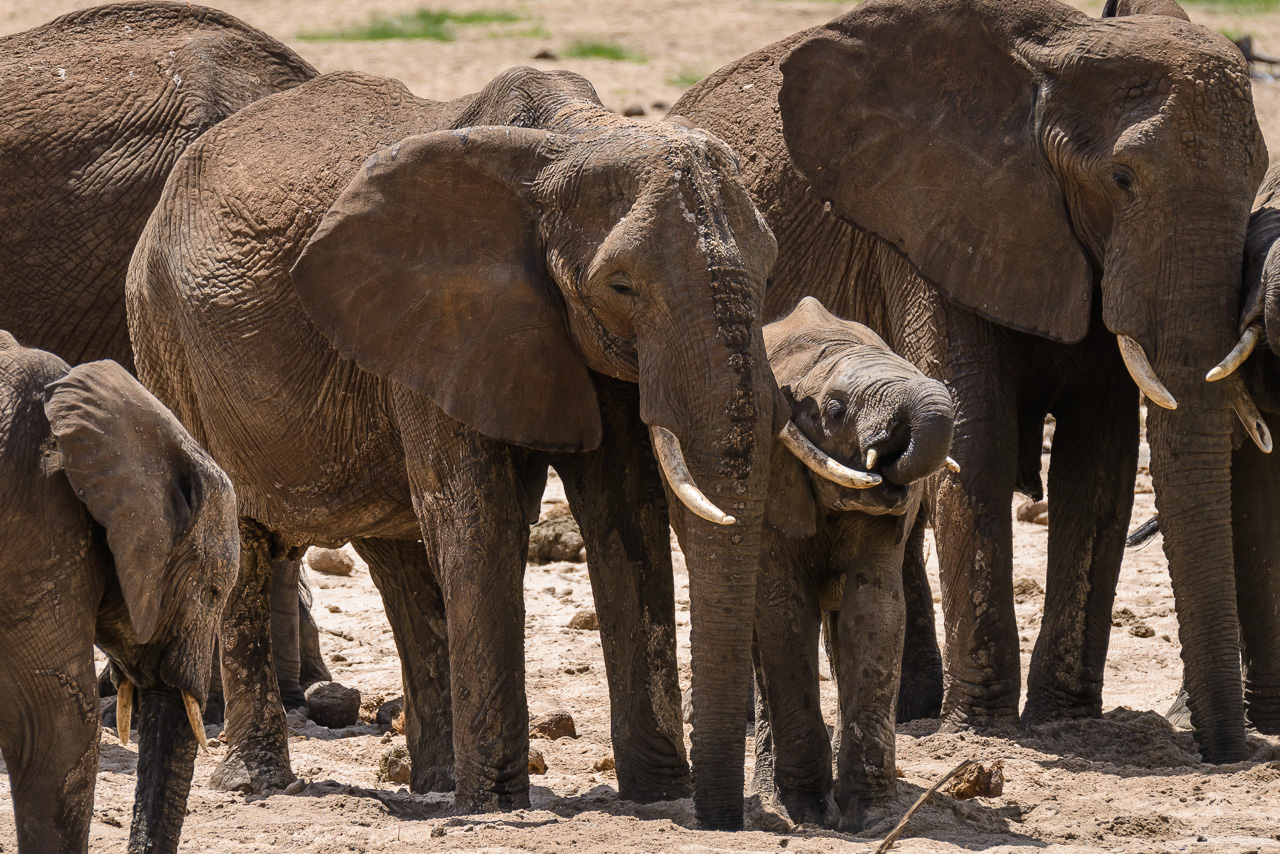
Covering more than 2,600 km², Tarangire National Park comprises a well-frequented northern part and a relatively remote southern part, which is made up of alluvial plains during the wet season, giving way to large grassy areas during the dry season. Wildlife concentrations are fantastic from June to October, when, unable to find water elsewhere, animals from far afield gather at the Tarangire River. Wildlife is naturally more difficult to find during the wet season. Tarangire is best known for its large herds of elephant, and offers a very rounded safari experience when combined with the Serengeti.
Tarangire is a two-hour drive from Arusha. We recommend the small, intimate camps located within the park itself, as these offer direct access to the wildlife.
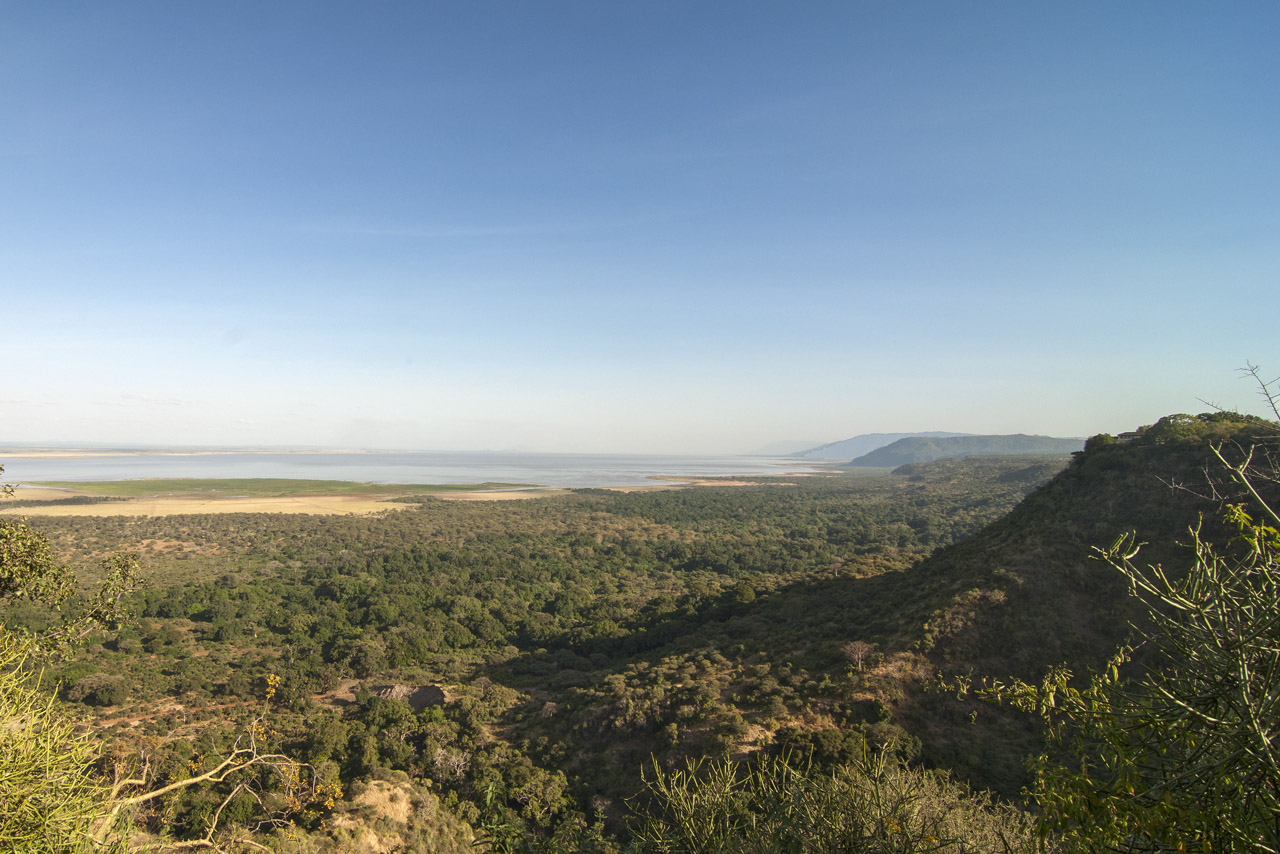
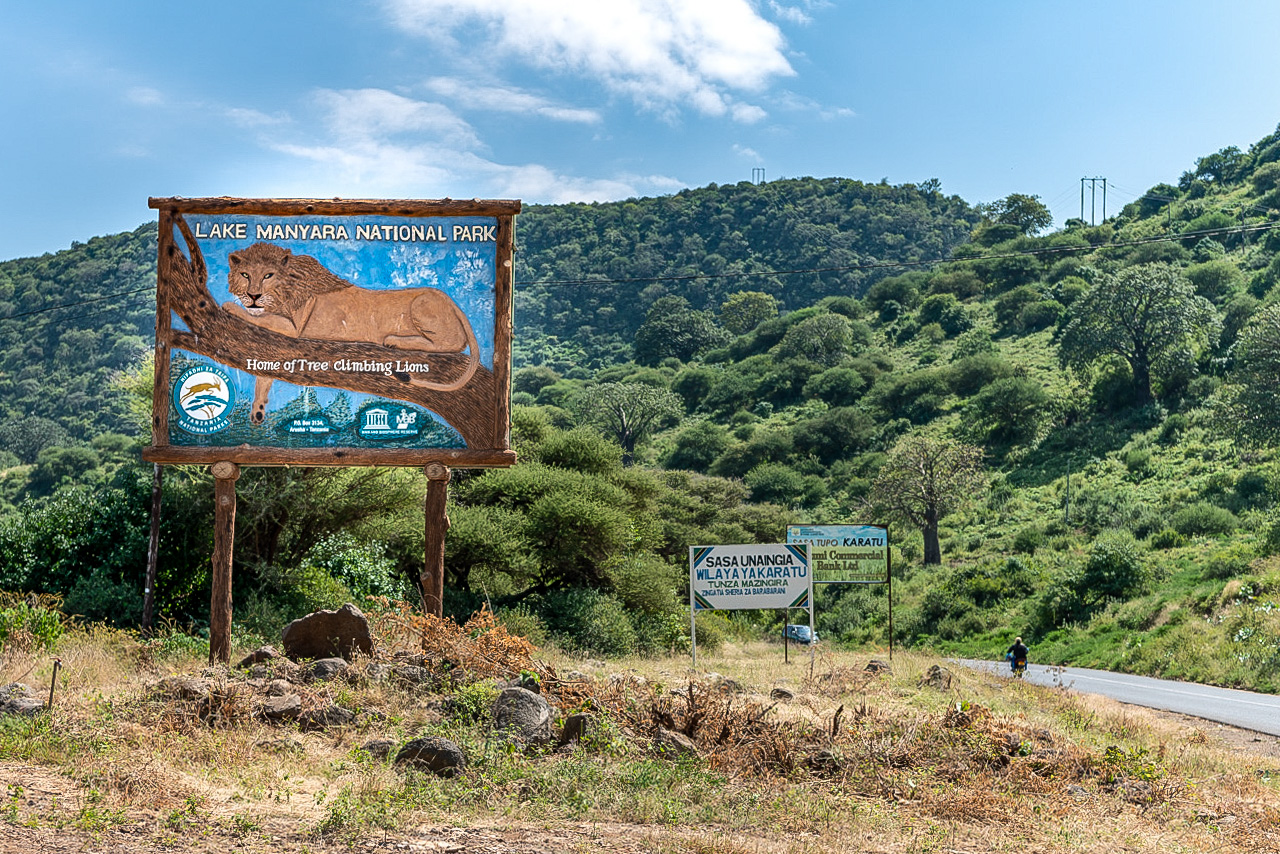
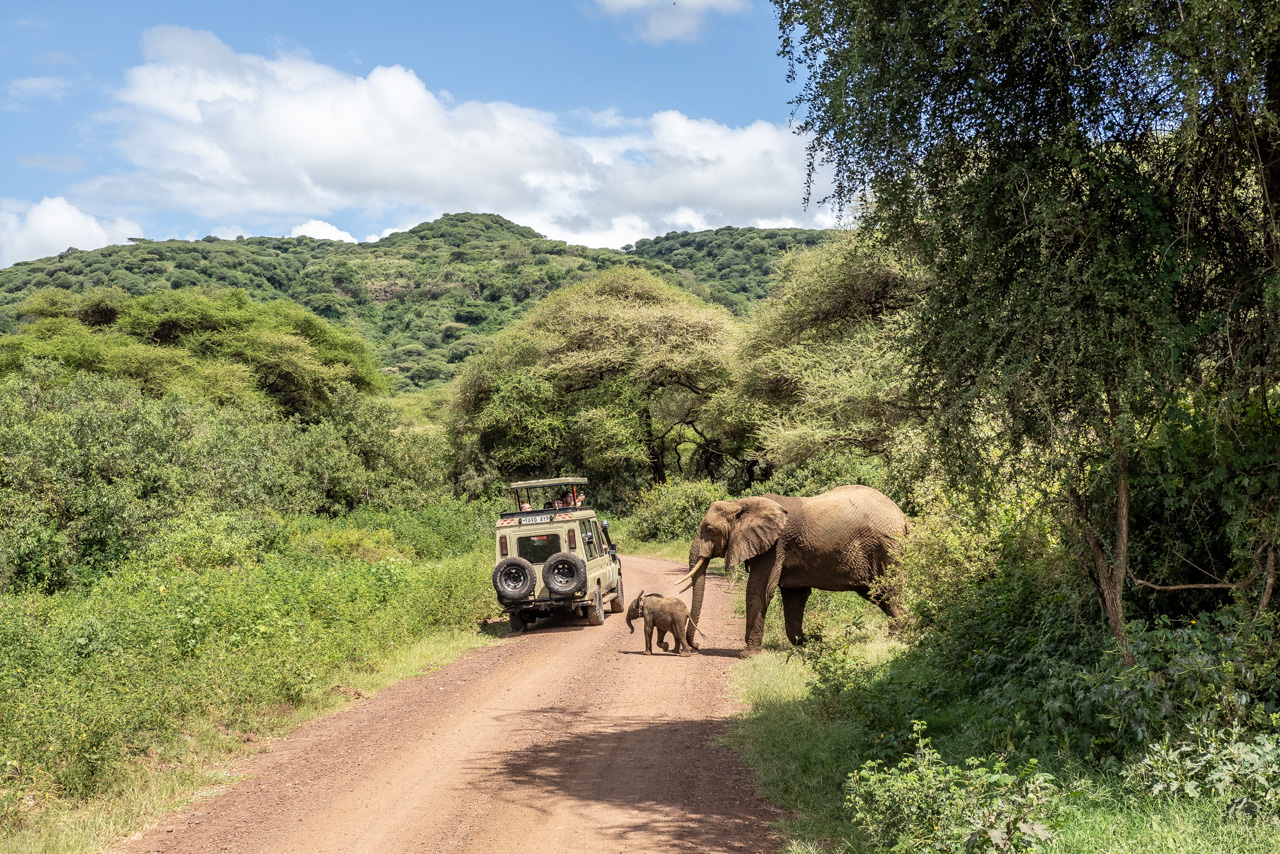
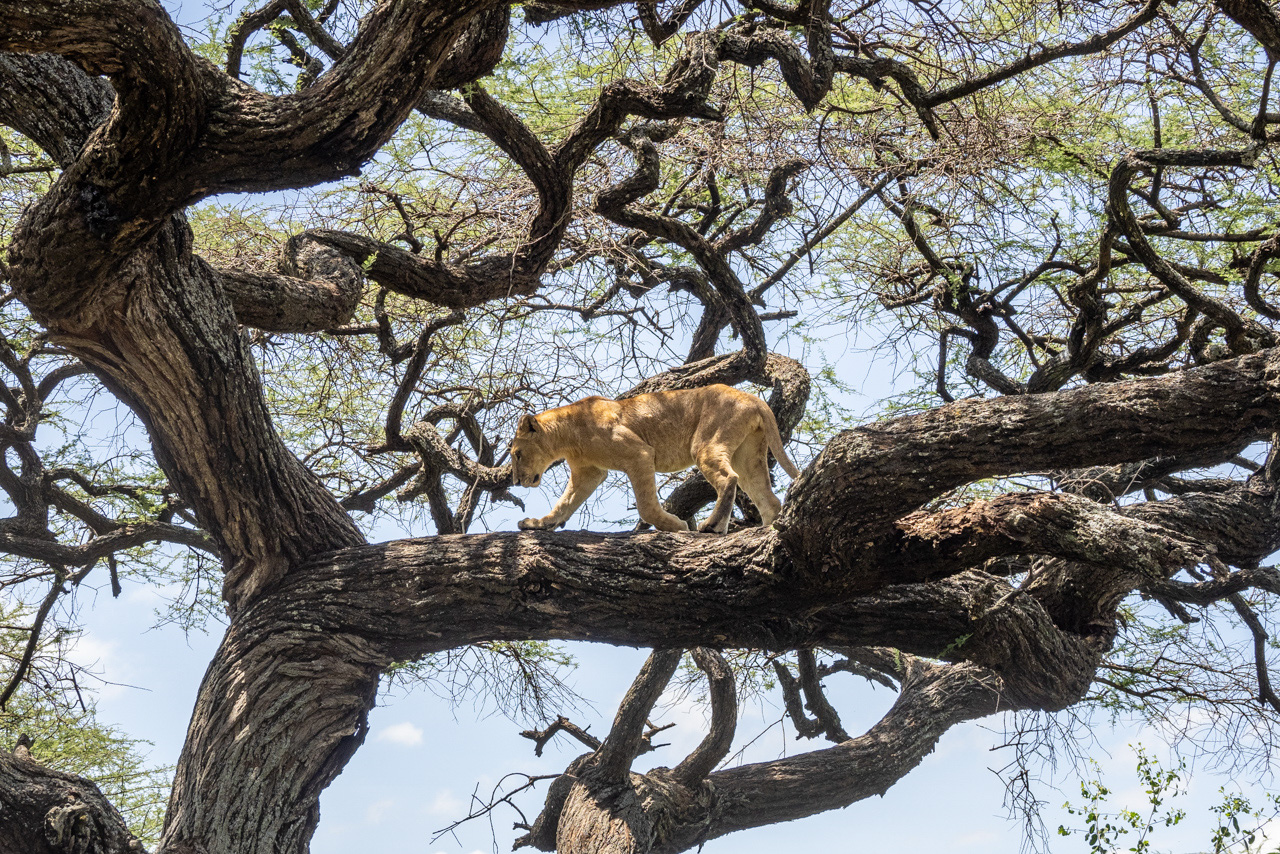
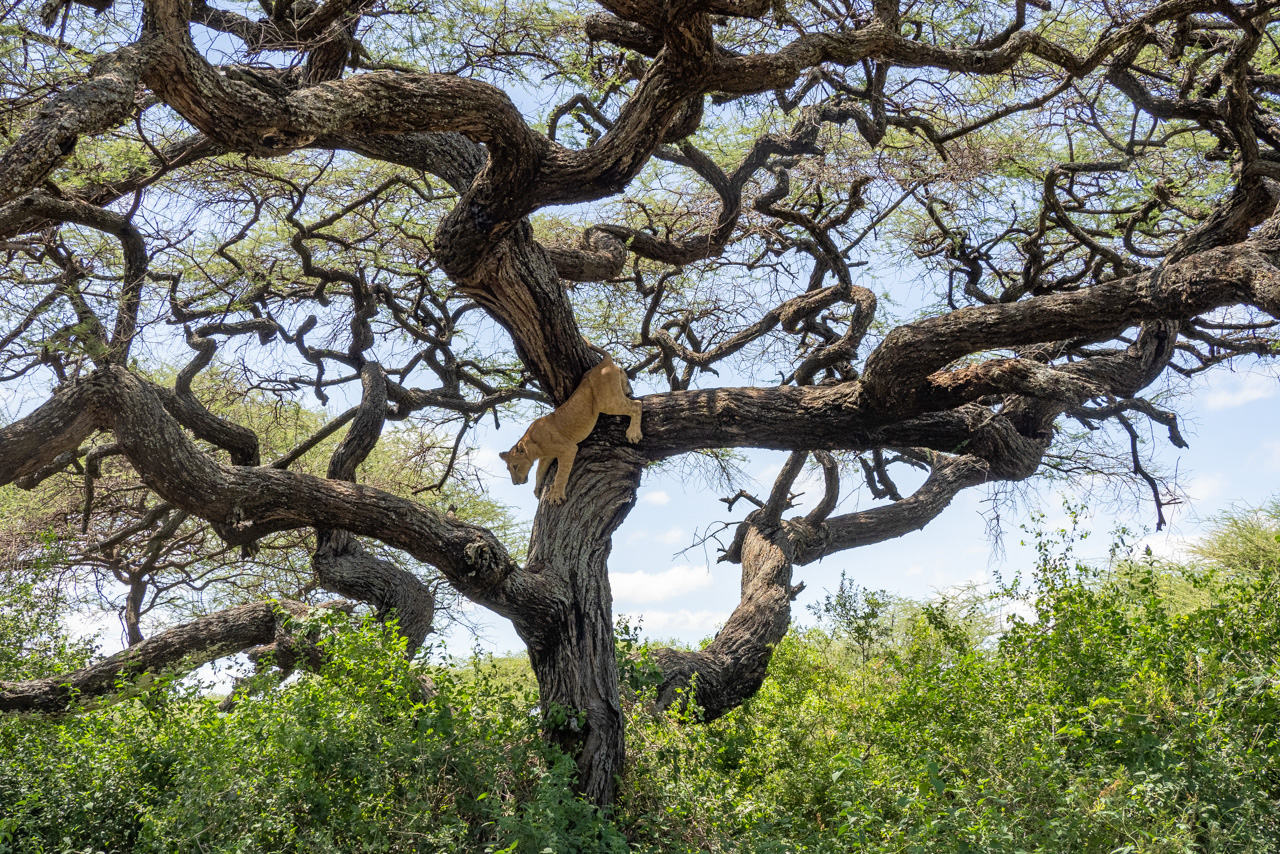
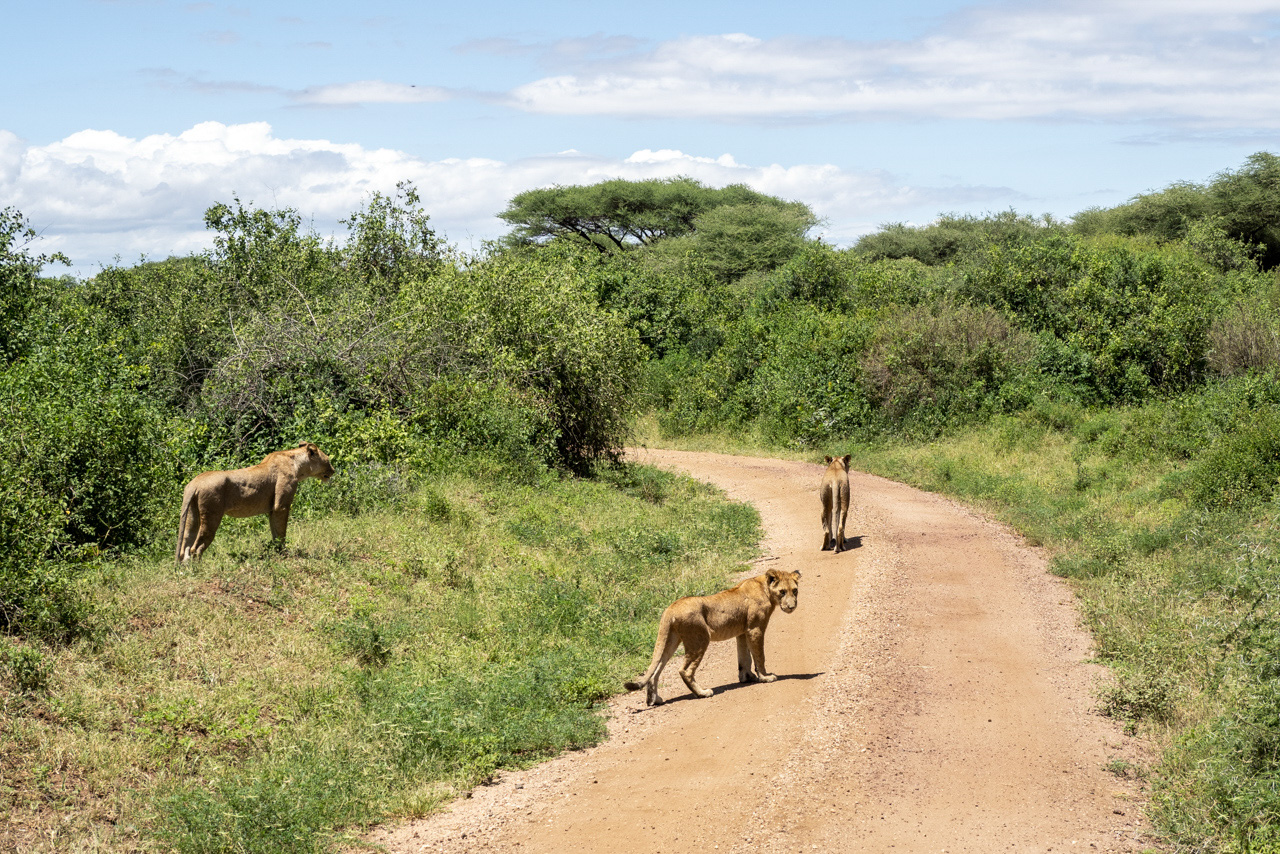
The northern gate of Manyara National Park is located 120 km west of Arusha close to the village Mto wa Mbu. If you like we may stop here for a walk to discover a bit of the local village life.
The park is renowned for its good concentration of elephant and tree climbing lion. It is also home to large herds of buffalo, giraffe, hippo and antelope. The area is also home to a conspicuous number of olive baboons, which gather in groups of up to several hundred. The flamingos on the lake, of course, provide a fascinating spectacle, and with over 400 species, it is also a birding enthusiast’s dream.

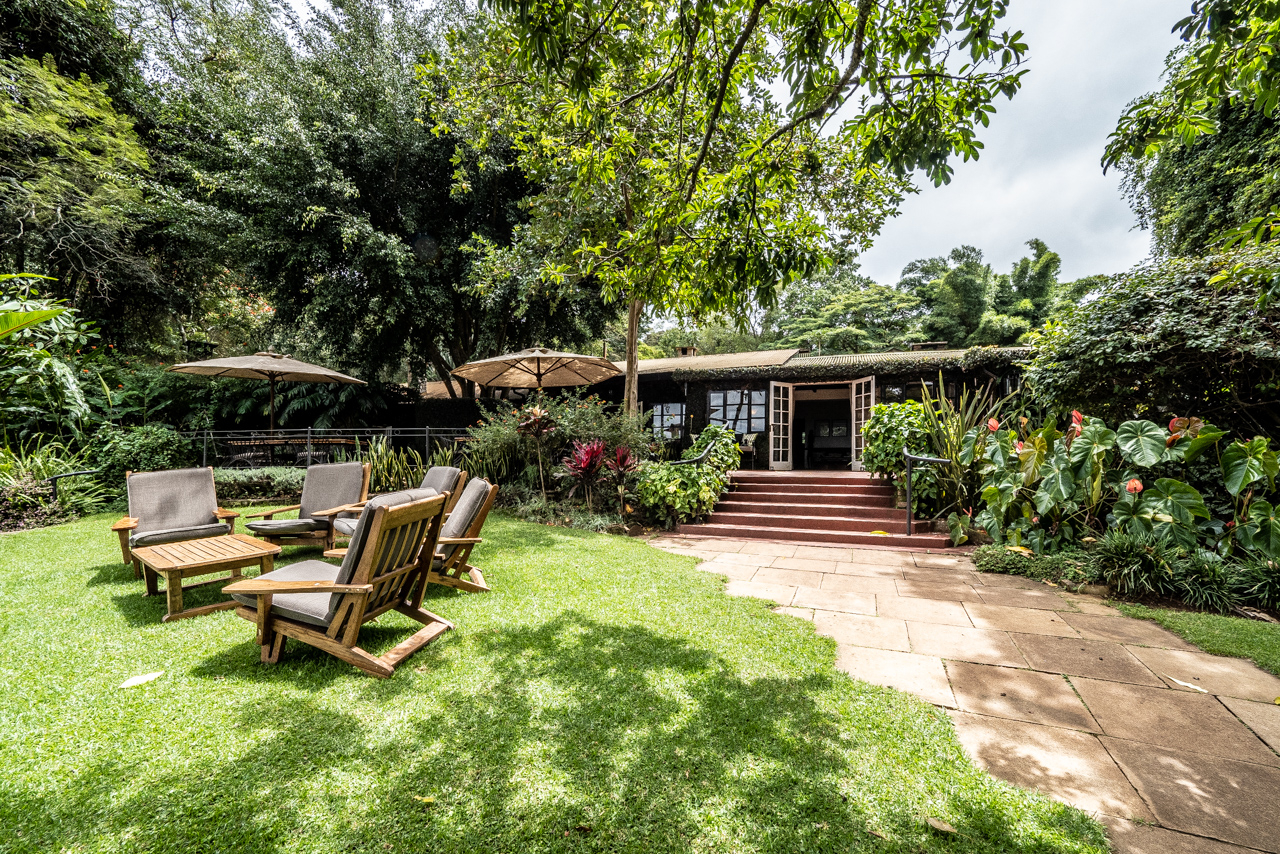
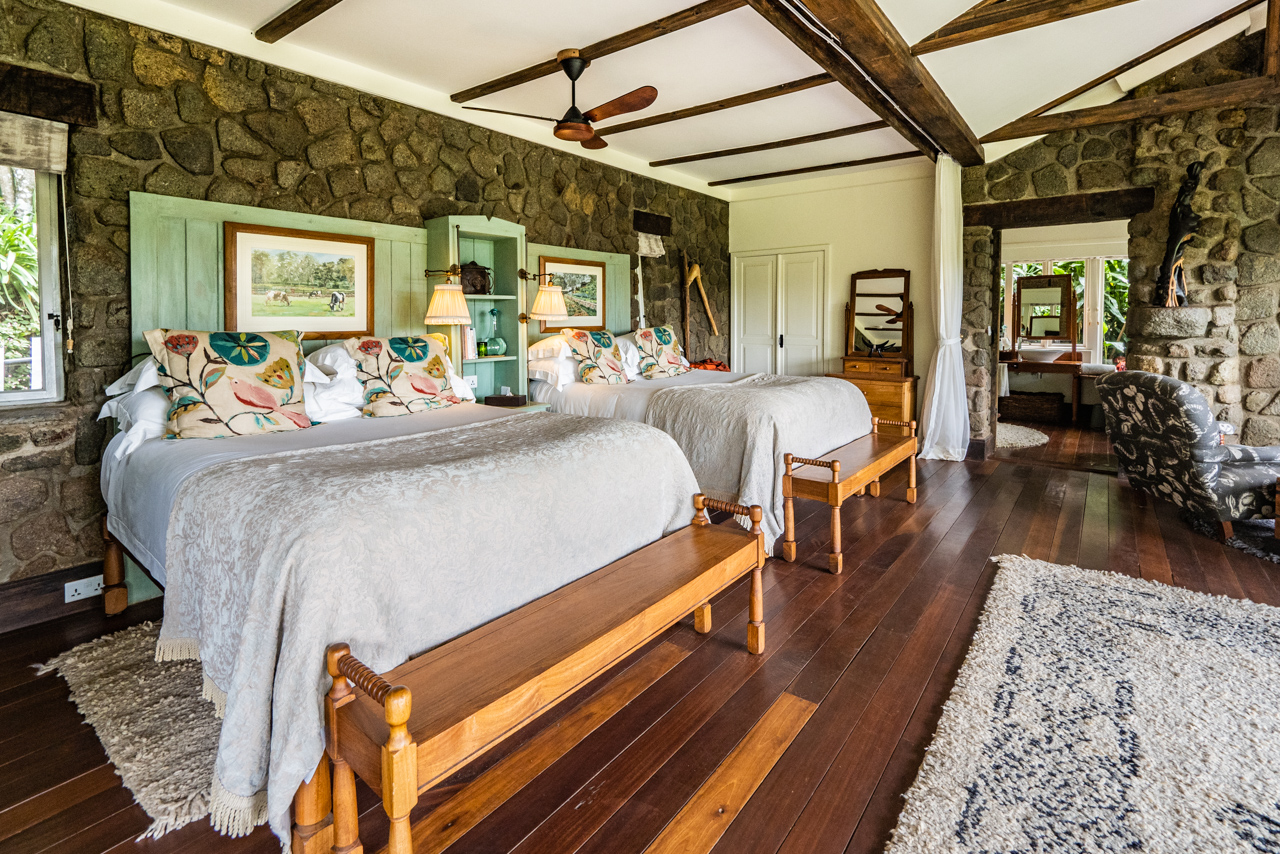
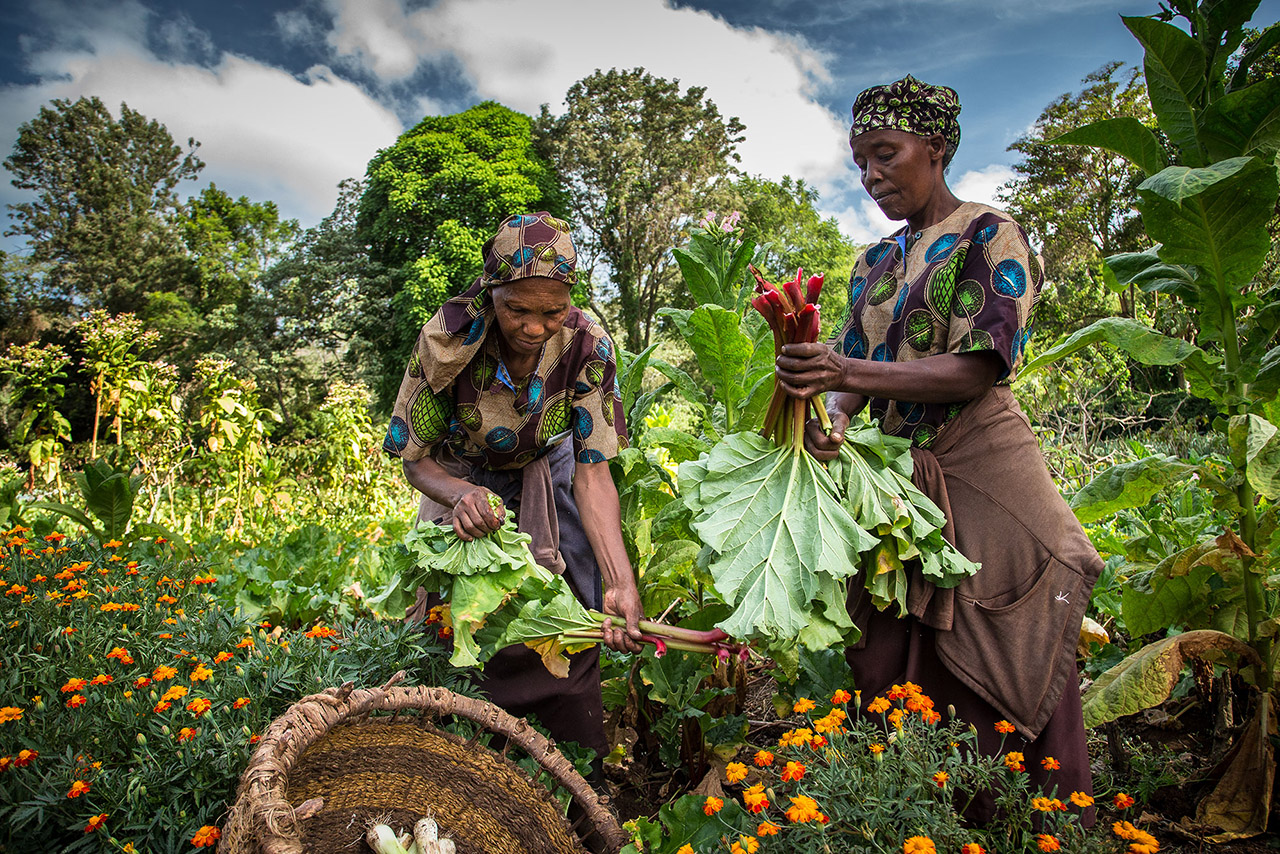
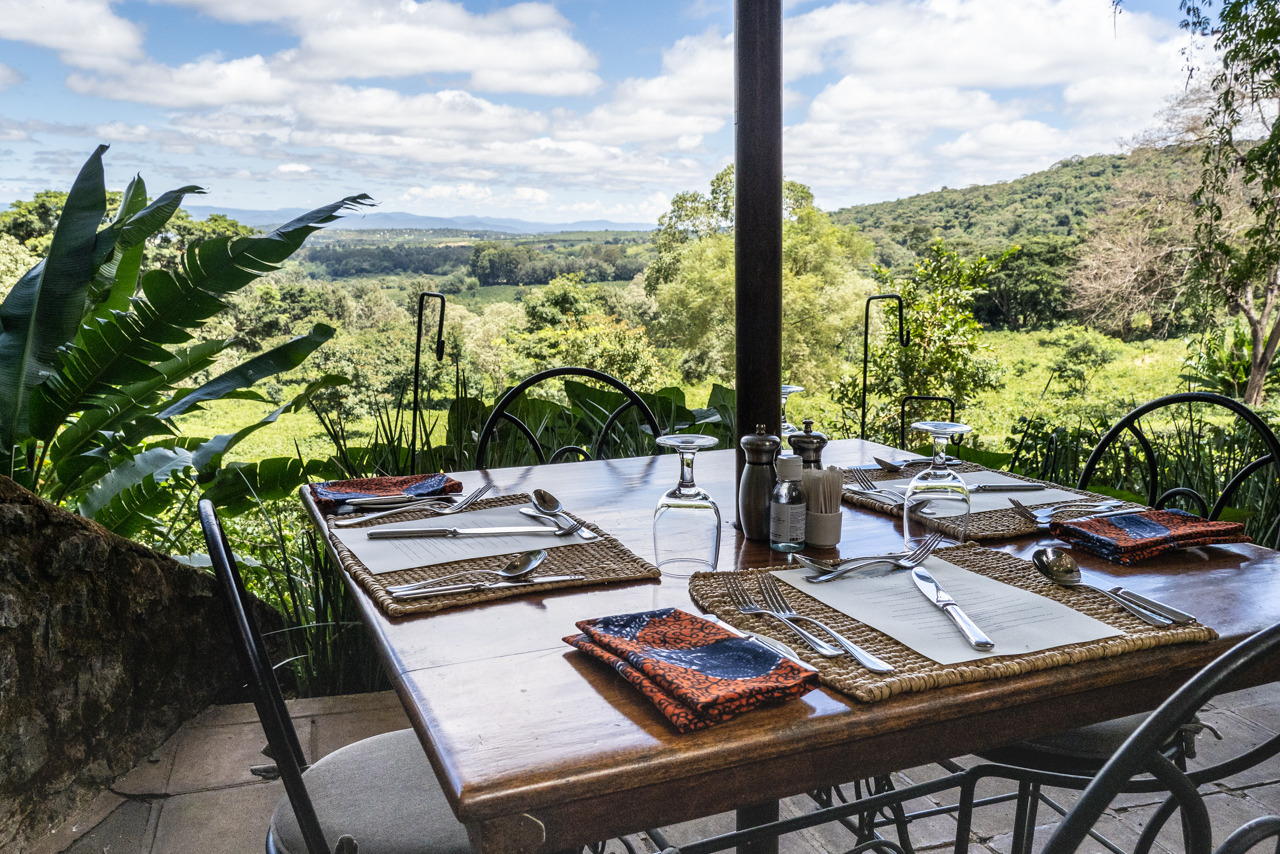
Accommodation Gibb's Farm is not only a smart destination for visiting safari guests, but also a working organic coffee, fruit and vegetable plantation. Originally built in 1929, the farm has been extending a warm welcome to guests for the past forty years.
It comprises 18 en-suite cottages, each equipped with fireplace, bathtub and veranda. Sympathetic refurbishment has continued to keep the main building up to date while retaining the farmhouse's original character.
Encircled by a historic English garden, the main building is where guests will find the restaurant, lounge and bar. The spectacular views from the veranda reach much further than the farm's plantation.
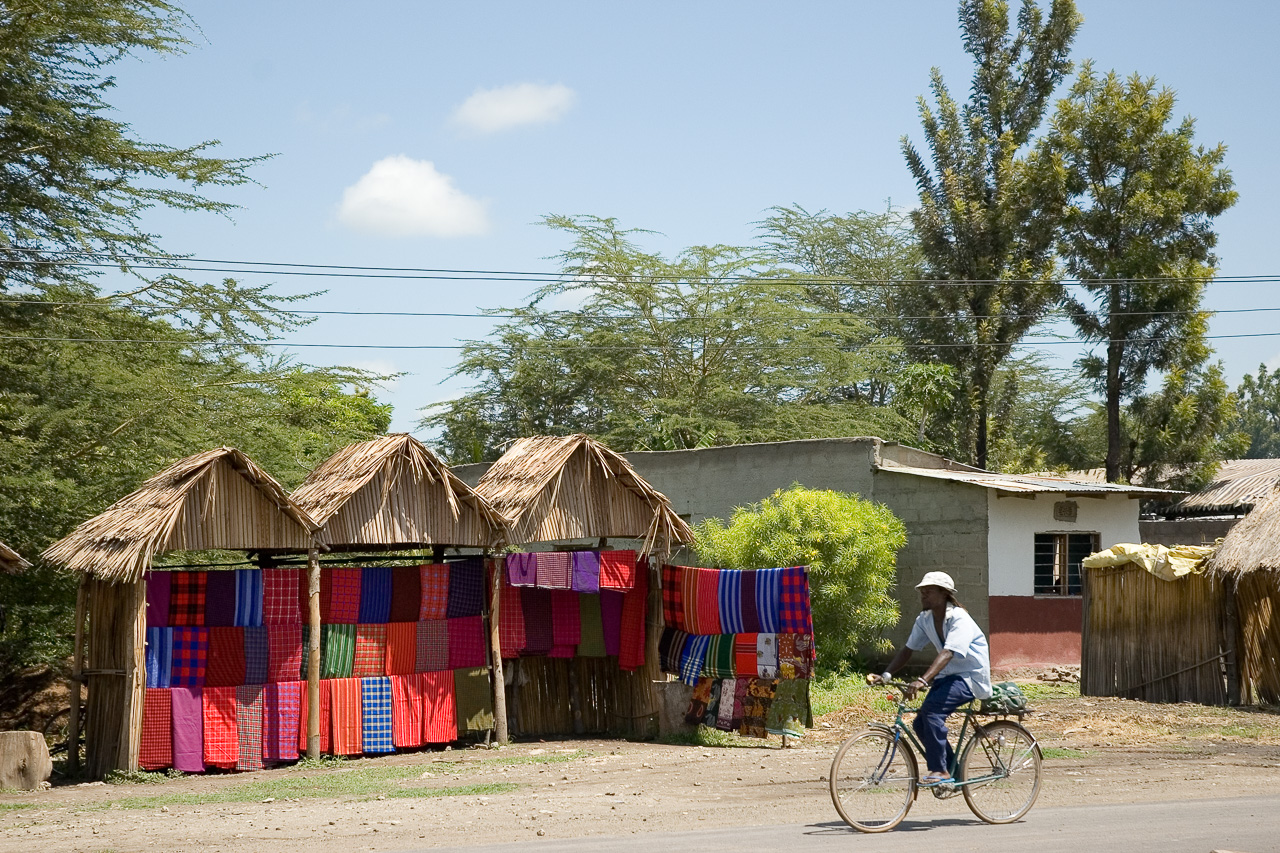
The cliffs of the Ngorongoro Crater receive a good amount of rainfall all year round. The altitude of the plateau around Karatu (1500 m), a small town with some 25’000 residents, offers a mild climate that is ideal for growing coffee, bananas and vegetables – which is something the German-East African authorities also knew when they supported the settlement of German farmers here at the end of the 19th century. Coffee is often planted together with banana trees, as their large leaves offer shade to the coffee plants.
A tarred road leads from Arusha via Lake Manyara to Karatu, which is where both the climb to the Ngorongoro Crater and the Serengeti ecosystem begins. The lodges in the Karatu region make the perfect base from which to explore the crater.
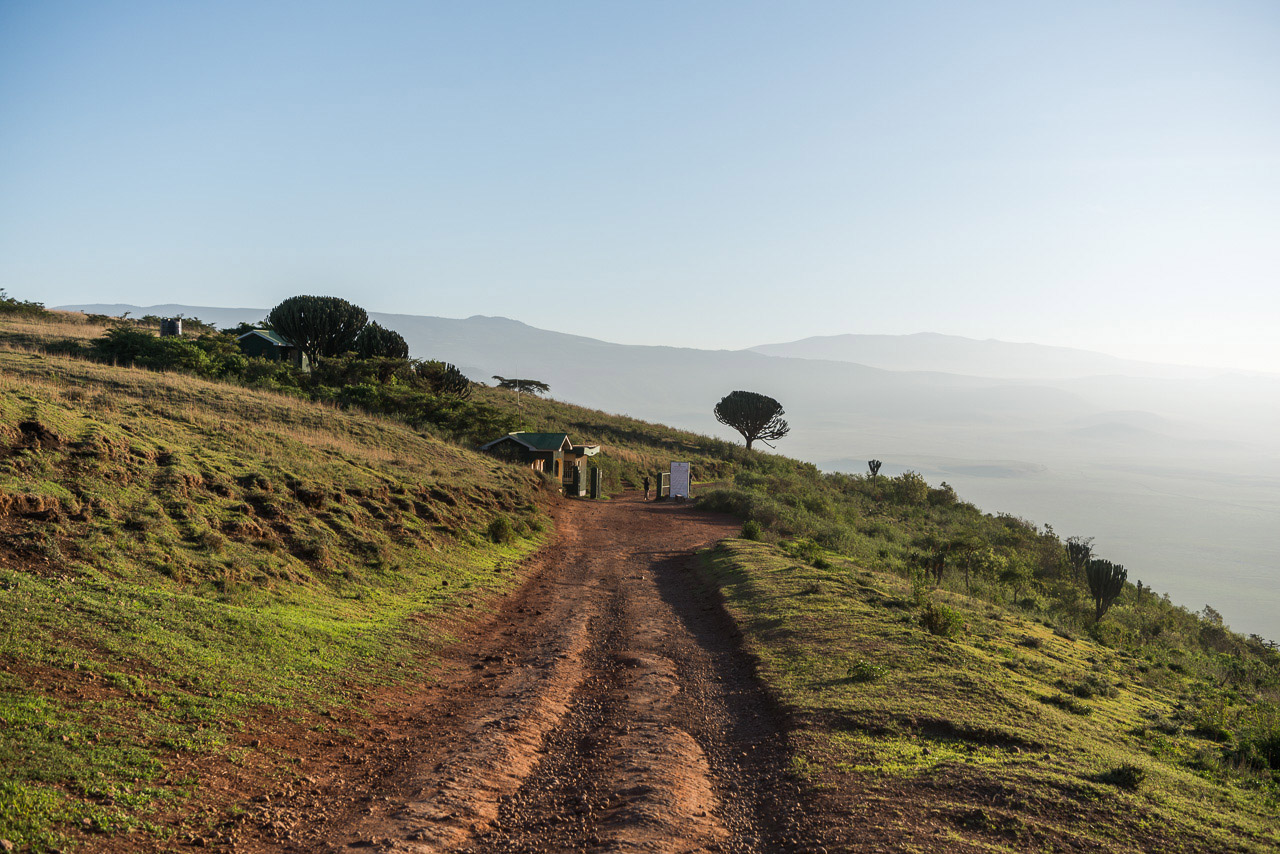
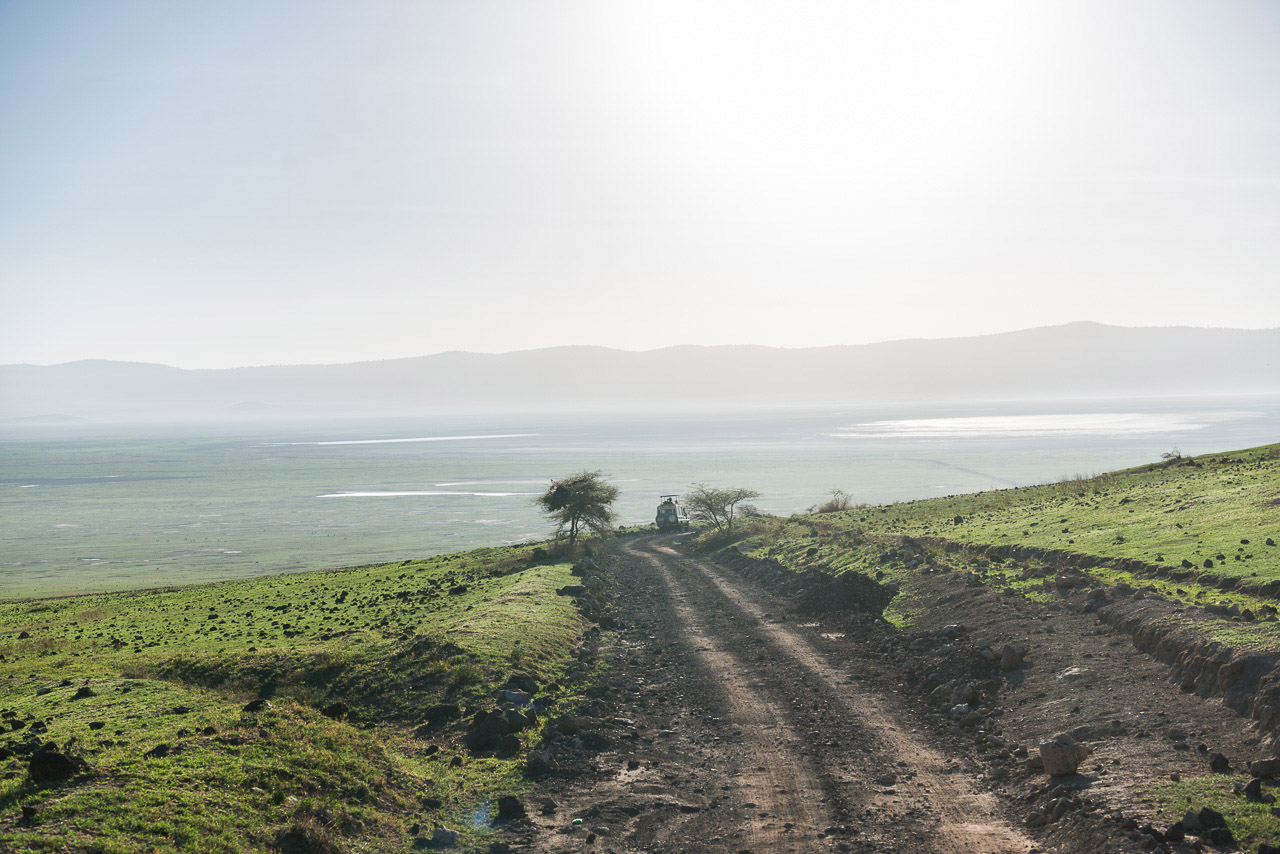
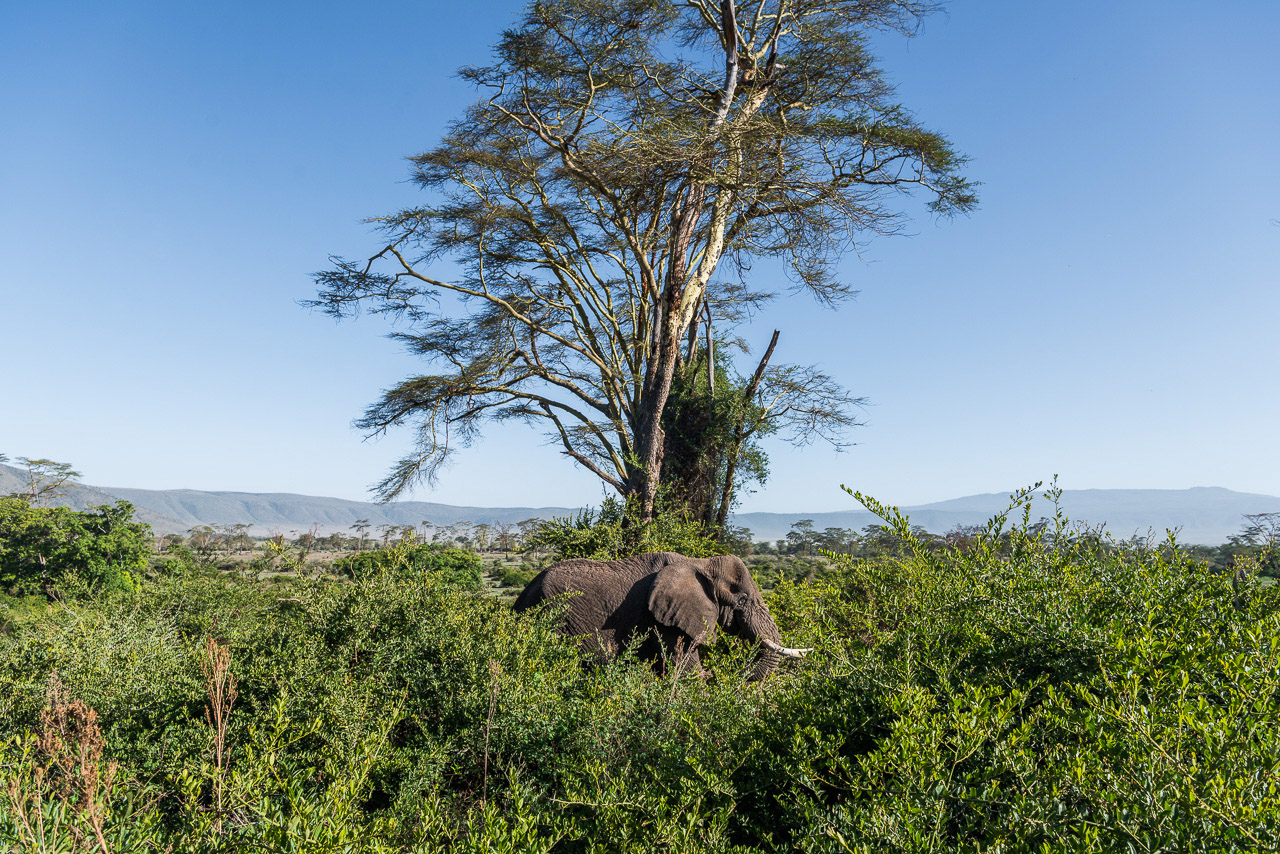
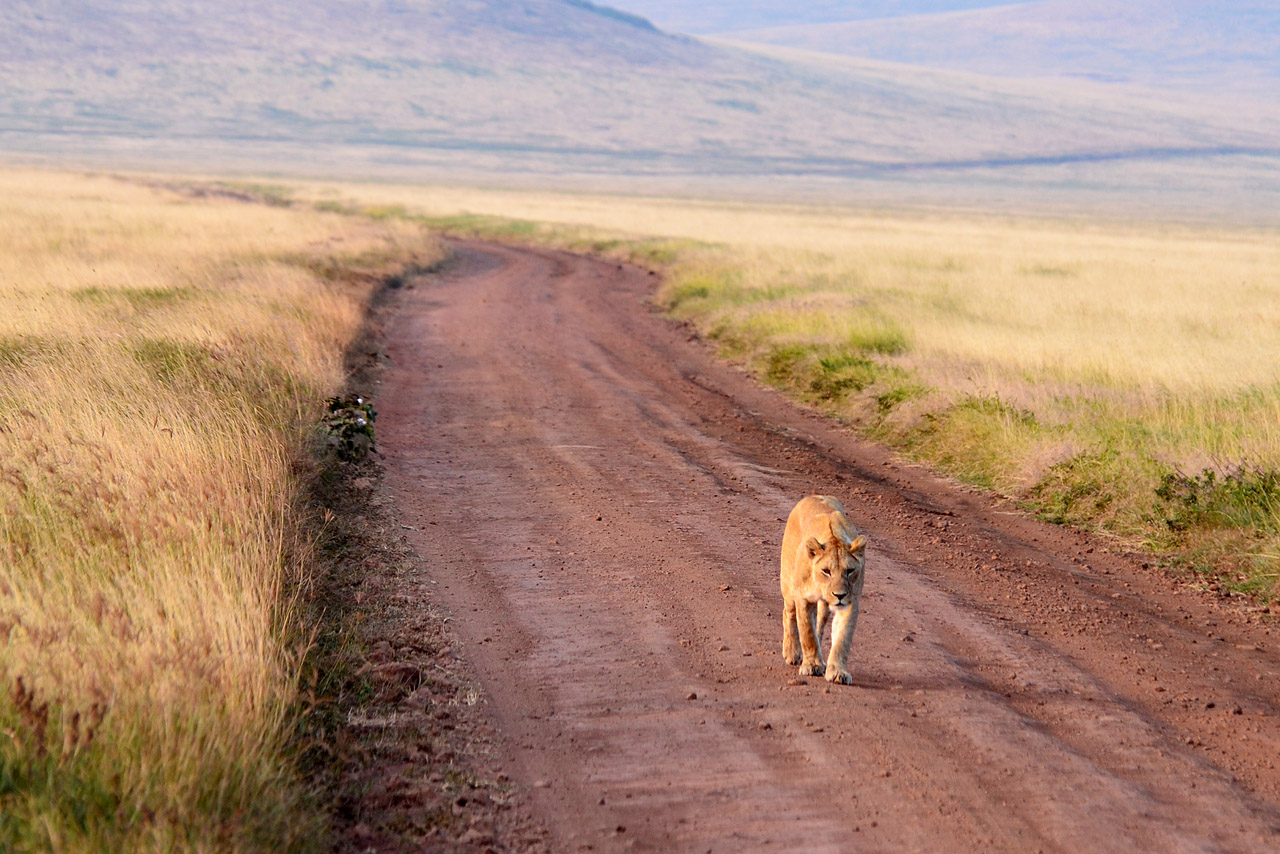

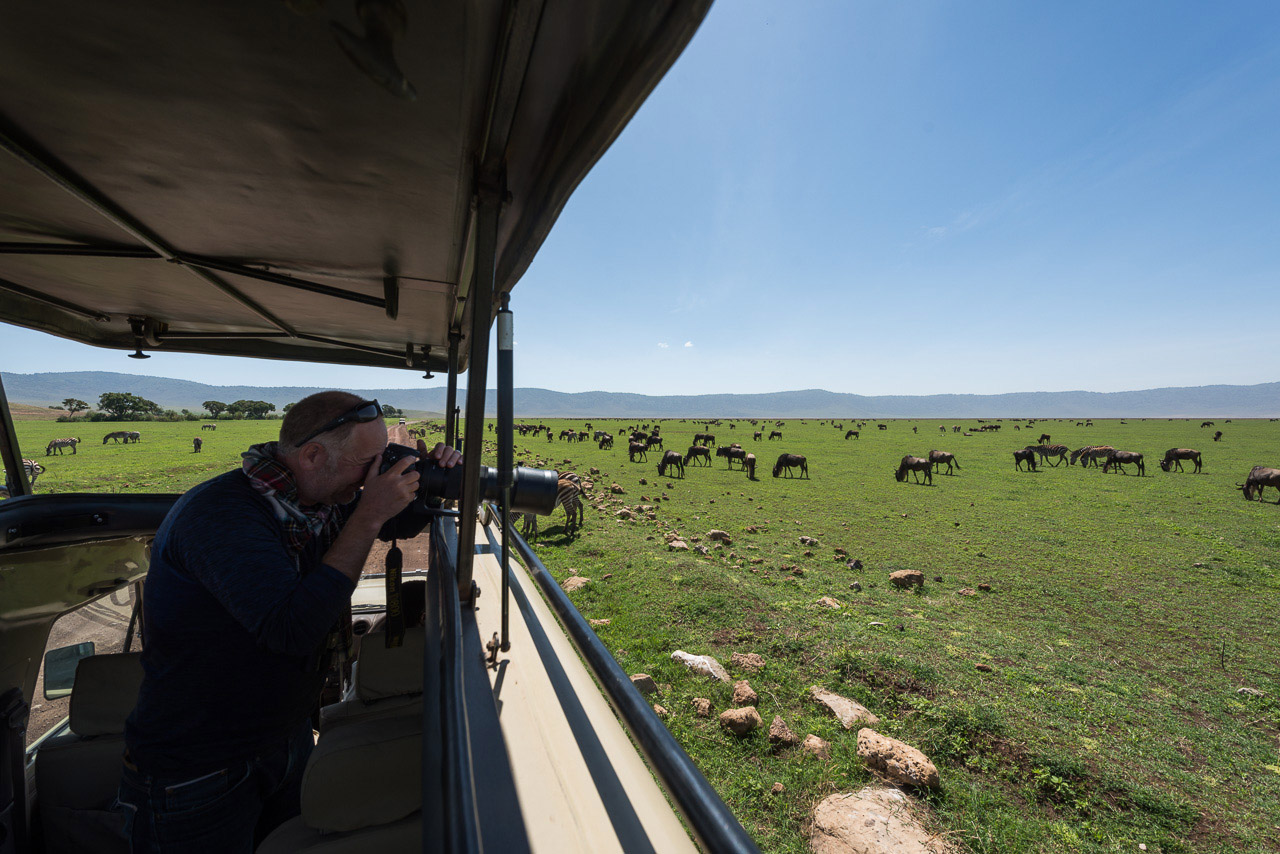
The Ngorongoro Crater is the world's largest inactive, intact, and unfilled volcanic caldera with 19km in diameter and walls 600m high. Its floor covers 260 square kilometres and acts like a natural zoo, providing food for a high resident animal population.
The mineral-rich crater floor is covered with nutritious grass and attracts large herds of animals. Up to 25’000 mammals, primarily herbivores can be found at any one time in the Ngorongoro Crater. The list includes wildebeest, eland, hartebeest, zebra, gazelle, buffalo, rhinos and warthog. Moors and forests provide food for hippo, elephant, baboon, waterbuck and bushbuck. Big cat such as lion, cheetah, leopard and serval find rich pickings here. Large packs of hyena also roam the crater, hunting or pinching the prey of other predators.
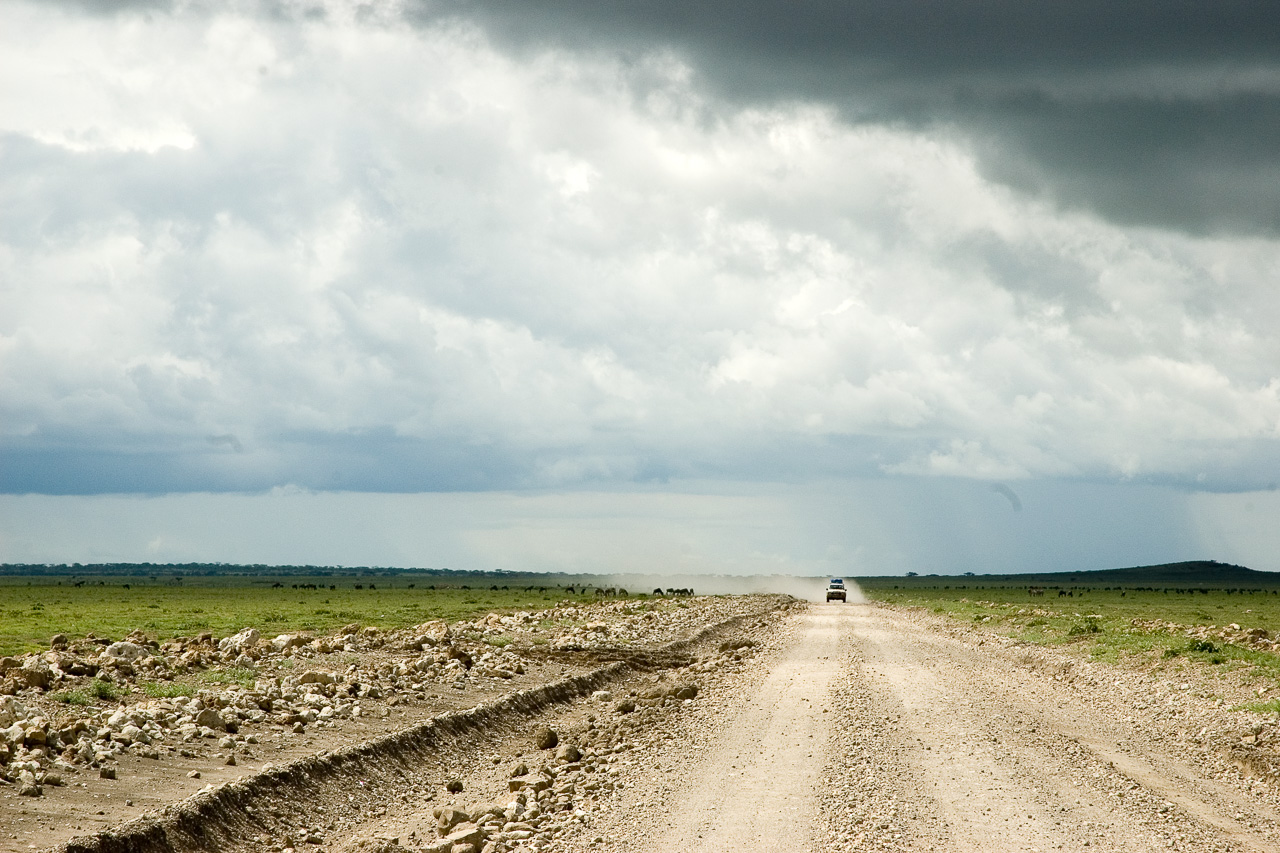
The dusty gravel road leads primarily to the west where the vast plains of the Serengeti extend to the horizon. After two hours of brave driving, you arrive at Naabi Hill Gate where some bureaucracy needs to be sorted. After a short time we leave the main road and follow small paths across the endless grassy plains to your next camp.

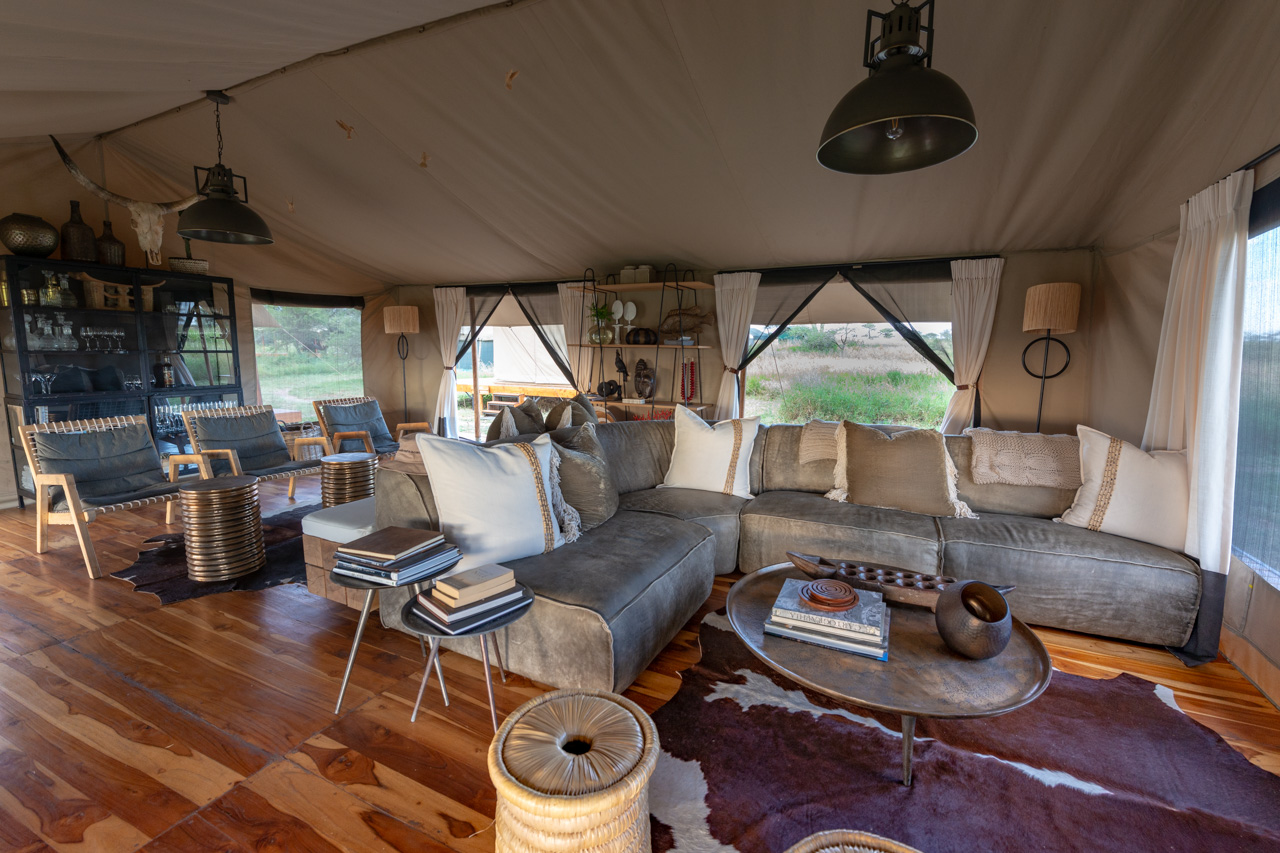
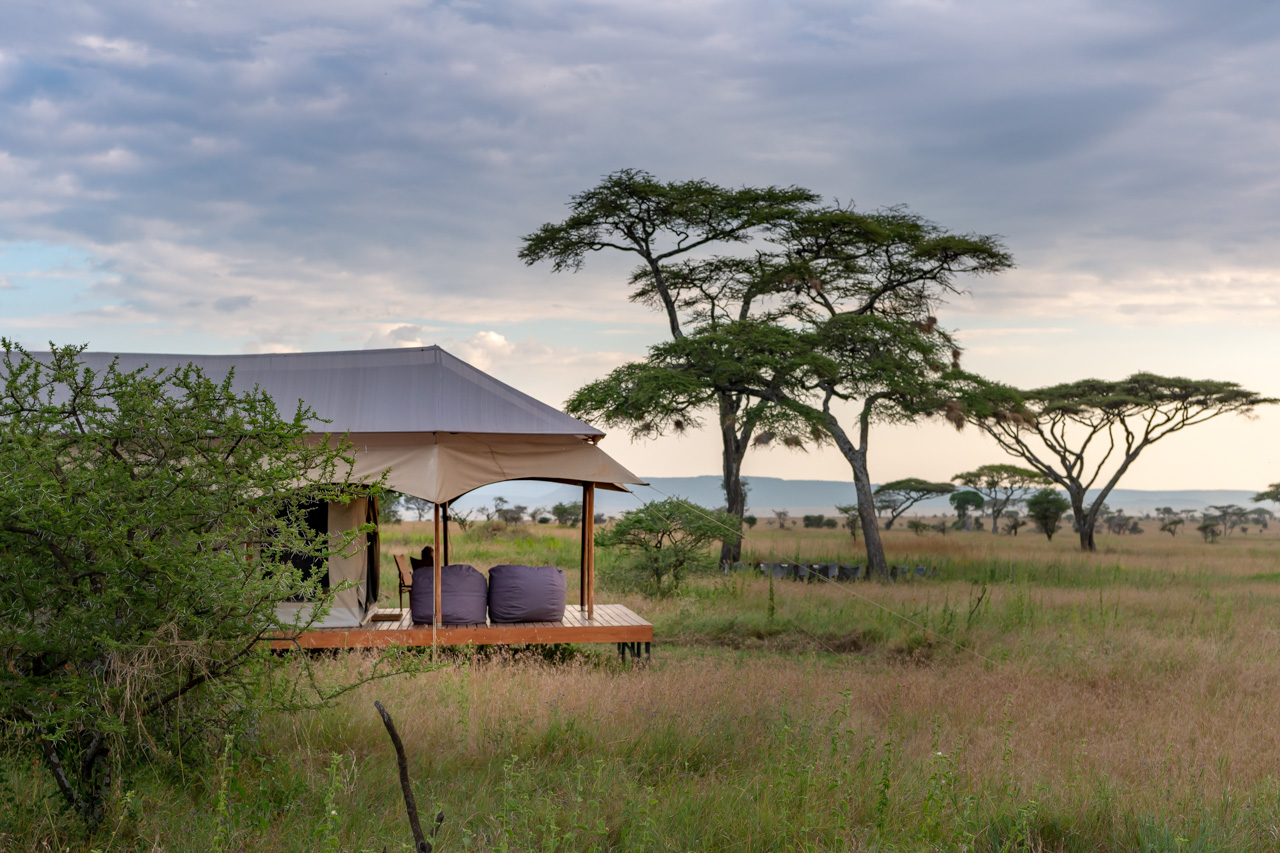
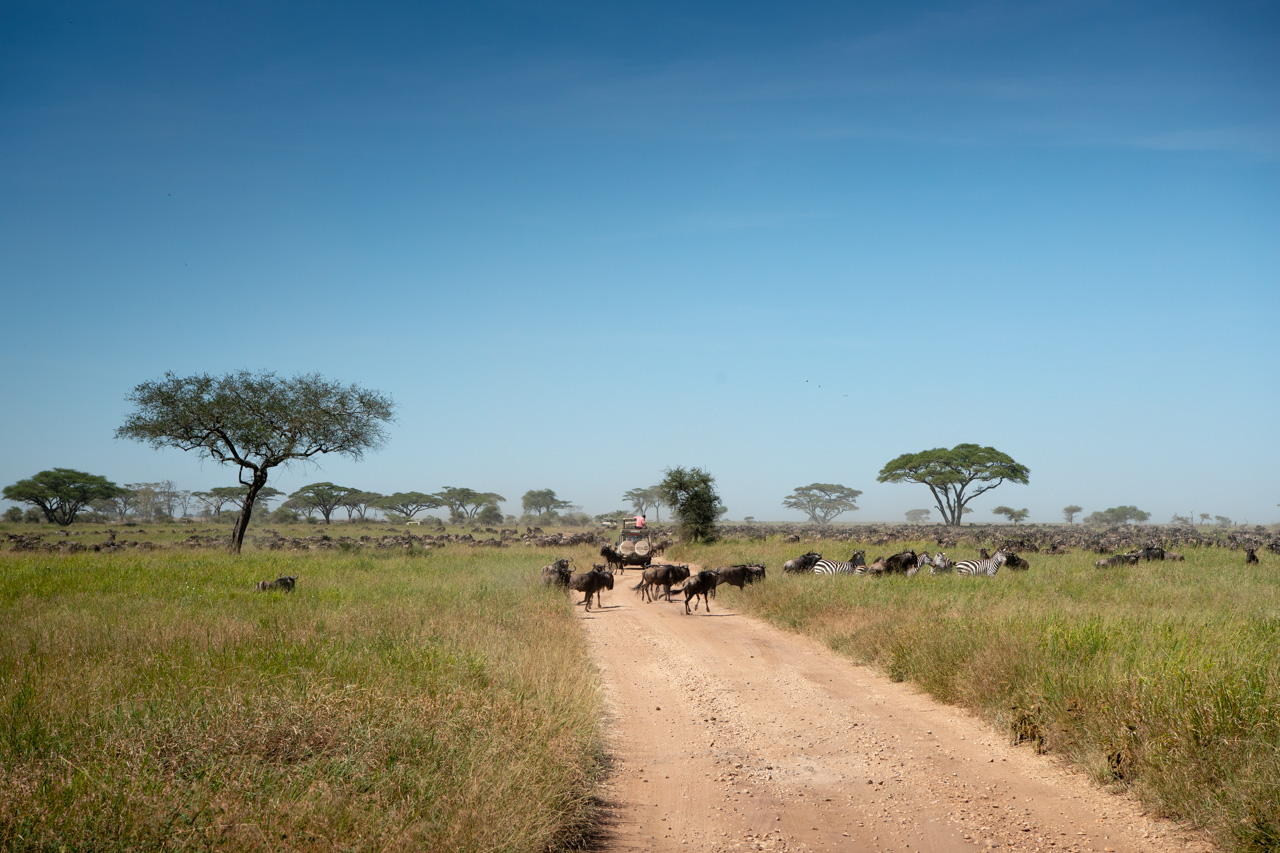
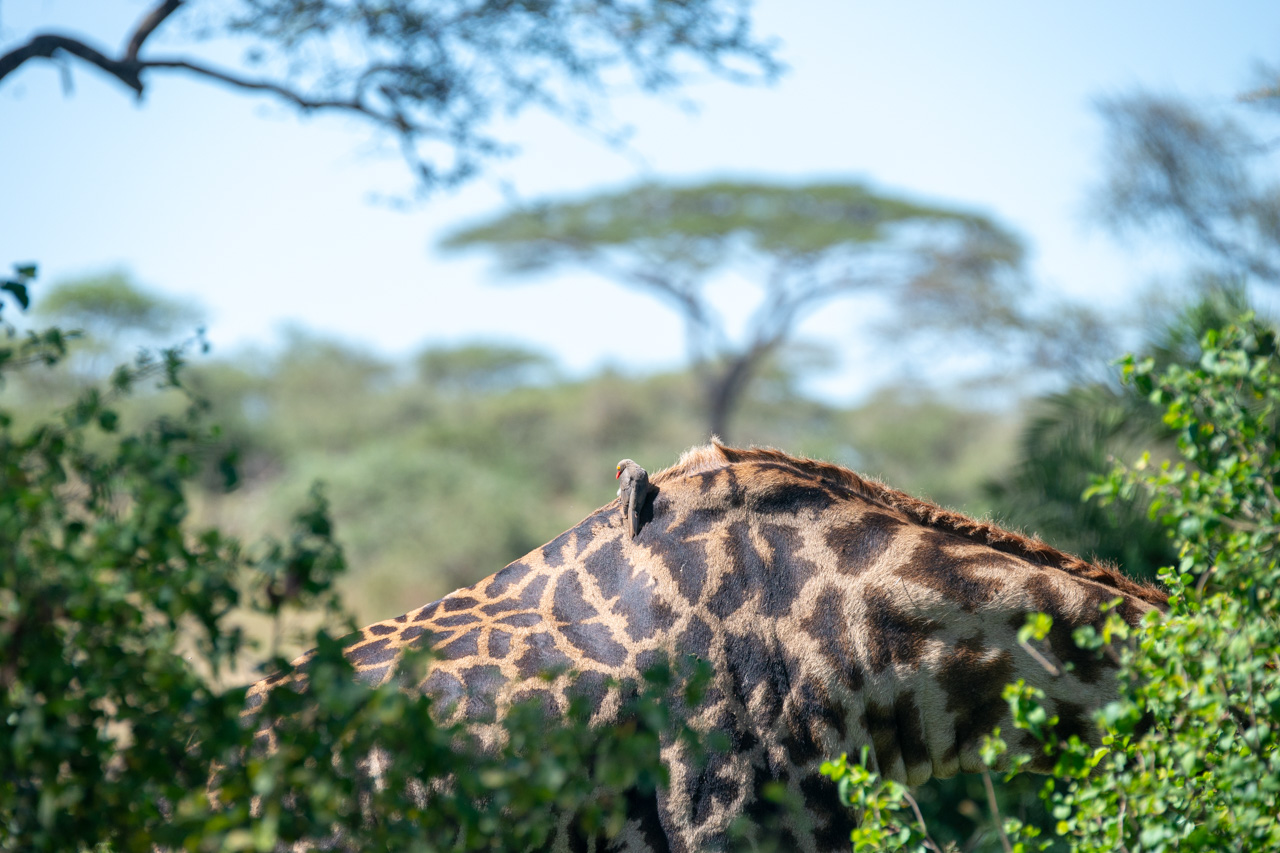
Accommodation
Siringit Serengeti Camp is a charming and stylish tented camp close to Seronera. The nine safari tents are set on raised wooden platforms and their verandahs provide ample space to relax in comfortable lounge chairs. Each tent has a generous sleeping area complete with a comfy lounge, a desk and luggage storage. The en-suite bathroom with shower, toilet and double washbasin has been lined with wood and gives the tent a bit of a Scandinavian feel. A gas fired heater keeps guests warm during the cooler season.
One of the tents is larger and offers enough space for families providing two separate bedrooms with en-suite bathrooms.
The center of Siringit are its two beautifully furnished dining and lounge tents, where you can meet and mingle if you want. As it is the only place with WiFi reception, you would also be able to check your emails here. If weather allows, guests will enjoy their dinner close to camp fire under the high umbrella acacia.
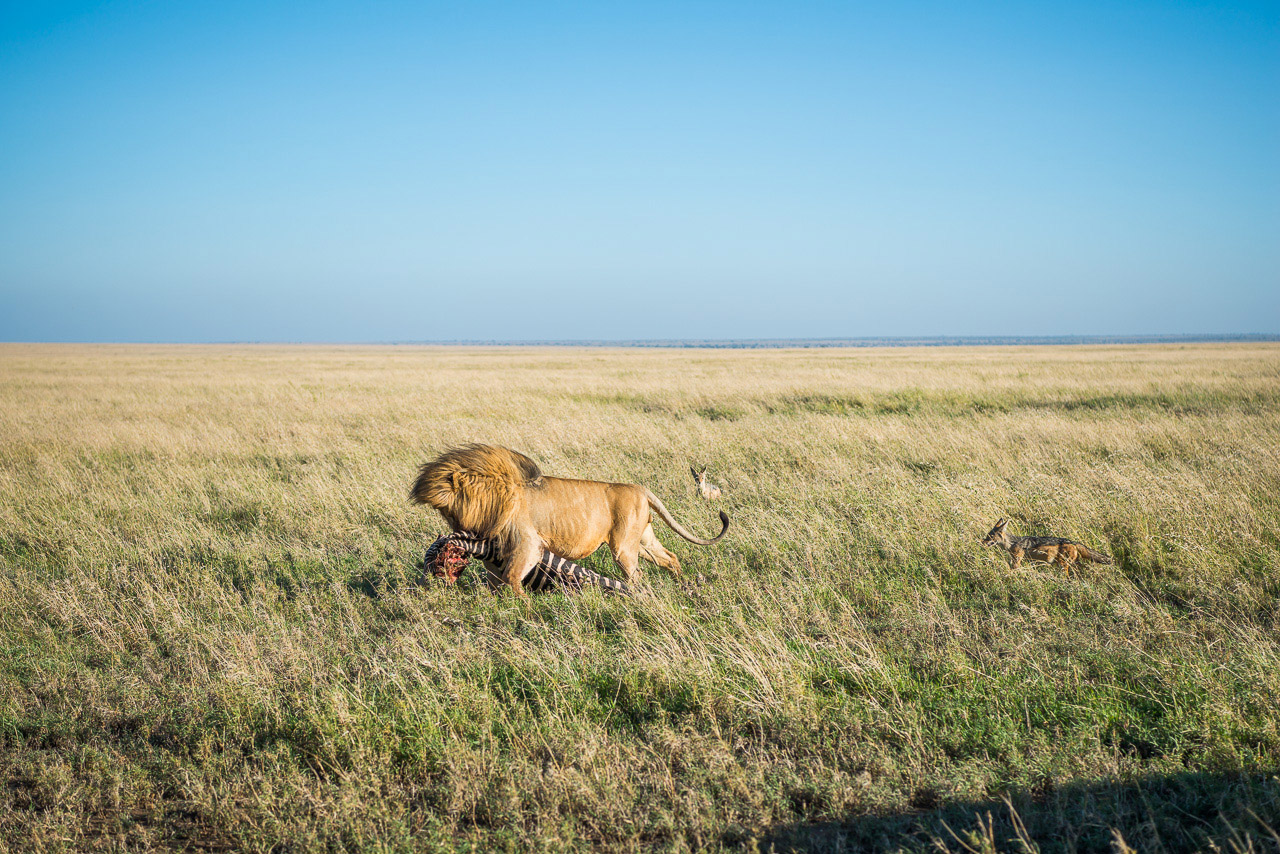
We recall Bernhard Grzimek’s television series and his descriptions of the wildlife paradise that is the Serengeti. The endless grassy plains are deeply impressive and the Serengeti is without doubt one of the most attractive safari destinations in the world.
If you’re in the right place at the right time, it is possible to experience the huge herds of wildebeest (up to two million), with some half-a-million zebra and a couple of hundred thousand Thompson’s gazelle, impala etc… in tow – accompanied by a couple of hungry lion, hyena and cheetah. The spectacle reaches its pinnacle in the north of the Serengeti, when the herds cross the Mara River.
The Serengeti ecosystem includes the actual national park (approx. 15’000 km²) and the bordering protected areas; chief among them is the Maswa Game Reserve in the southwest, the Grumeti and Ikorongo game reserves in the northwest, the Maasai Mara in the north, and Loliondo and the Ngorongoro Conservation Area in the east. The plains in the south comprise for the most part treeless flatlands that stretch out to the horizon. Typically, the plains of the Serengeti are punctuated by tree-covered granite outcrops known as ‘kopjes’, which provide the perfect resting place and observation post for predators. The northern part of the Serengeti is hillier with more vegetation.
The majority of guests travel to the camps that are located in the area where the migrating animals happen to be. If you wish to be alone, then look for a camp where the migration is NOT currently passing through, or combine several camps. There is an abundance of wildlife everywhere, mainly cheetah, hyena, jackal, lion and leopard, which are somewhat more difficult to find. In addition to wildebeest and zebra, there is a good concentration of topi, Grant and Thompson’s gazelle, eland and kudu etc… Elephant and buffalo are also present, but not in great numbers. Rhino also live in the Serengeti, but are naturally very shy creatures and therefore difficult to find.
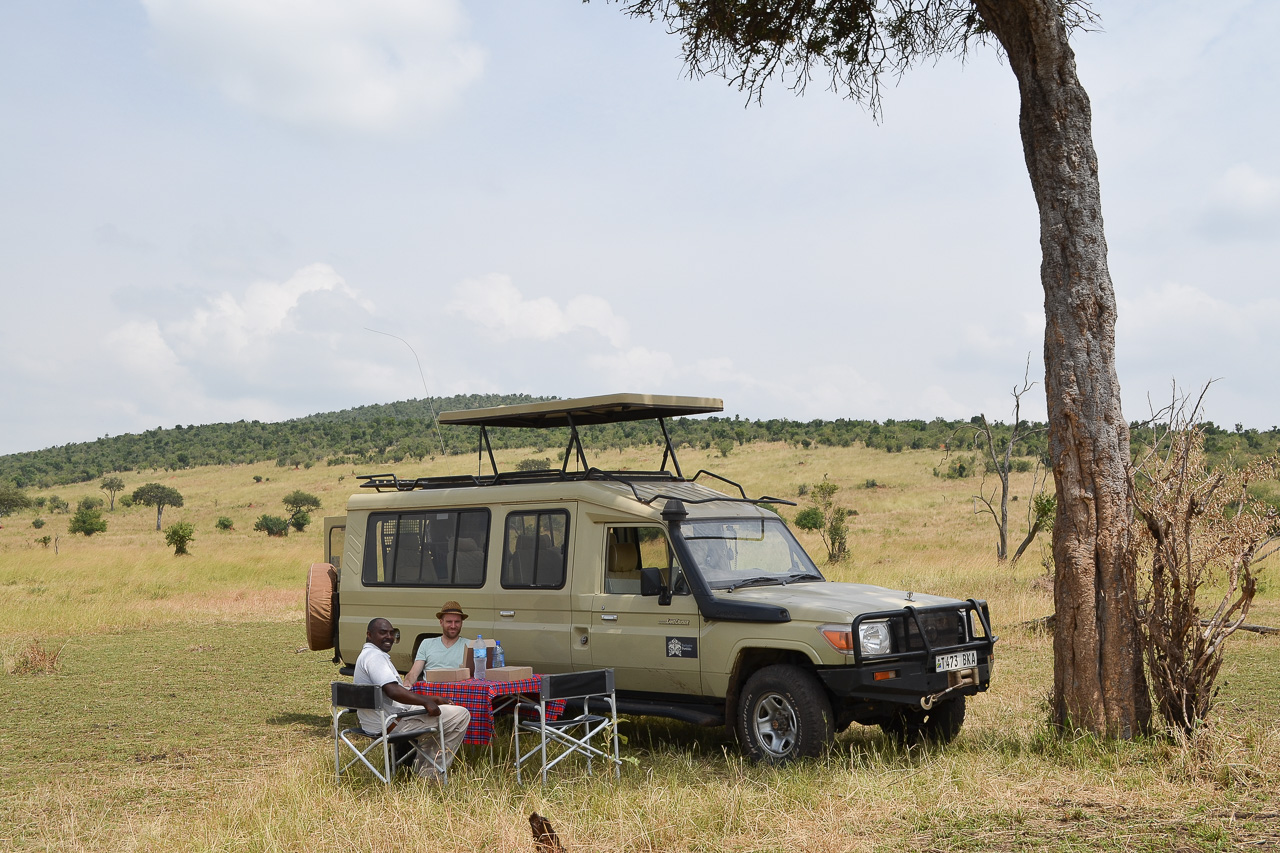
The north of the Serengeti is more hilly and there are more trees. You will spot more and more zebras and wildebeest the further north we drive - with a bit of luck you may suddenly find yourself surrounded by thousands of animals spread over the endless hills. Small black dots as far as the eye can see!

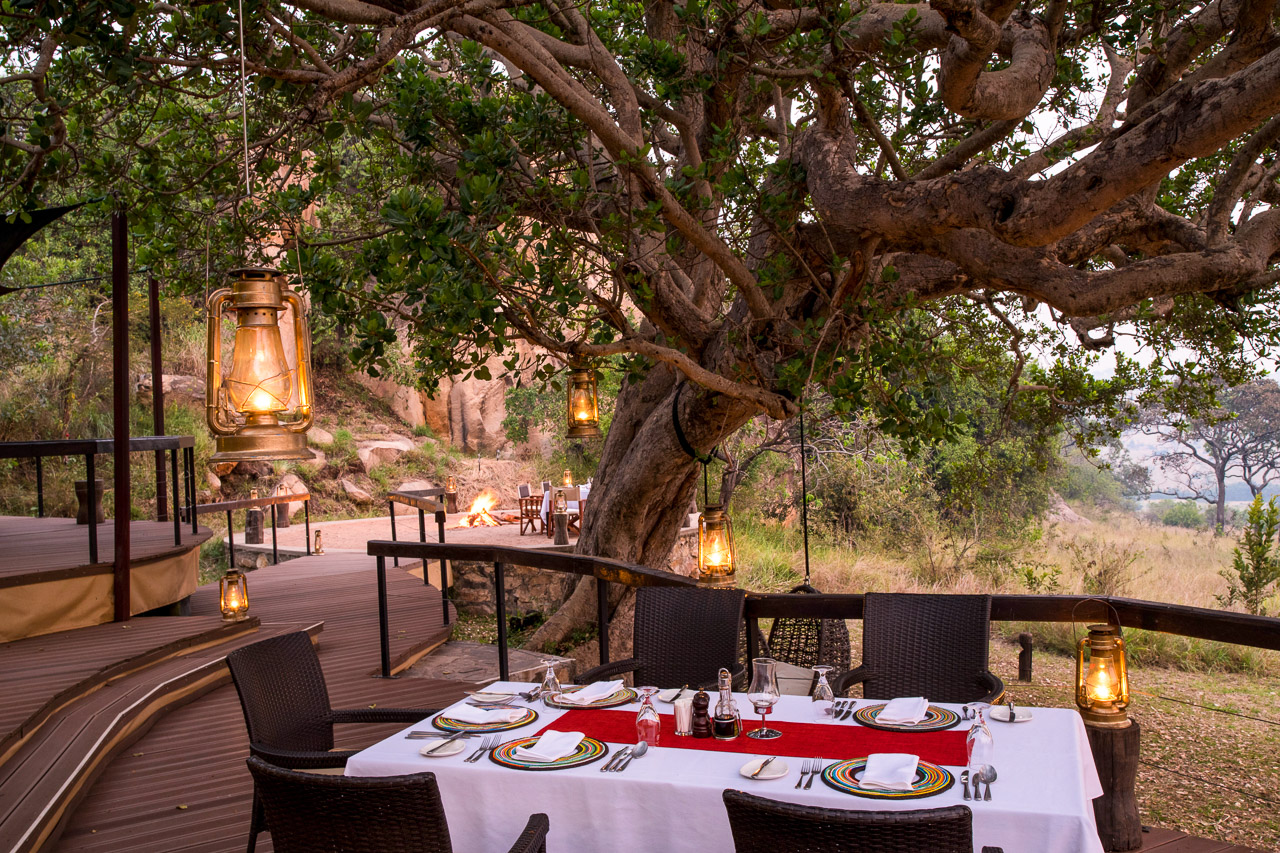
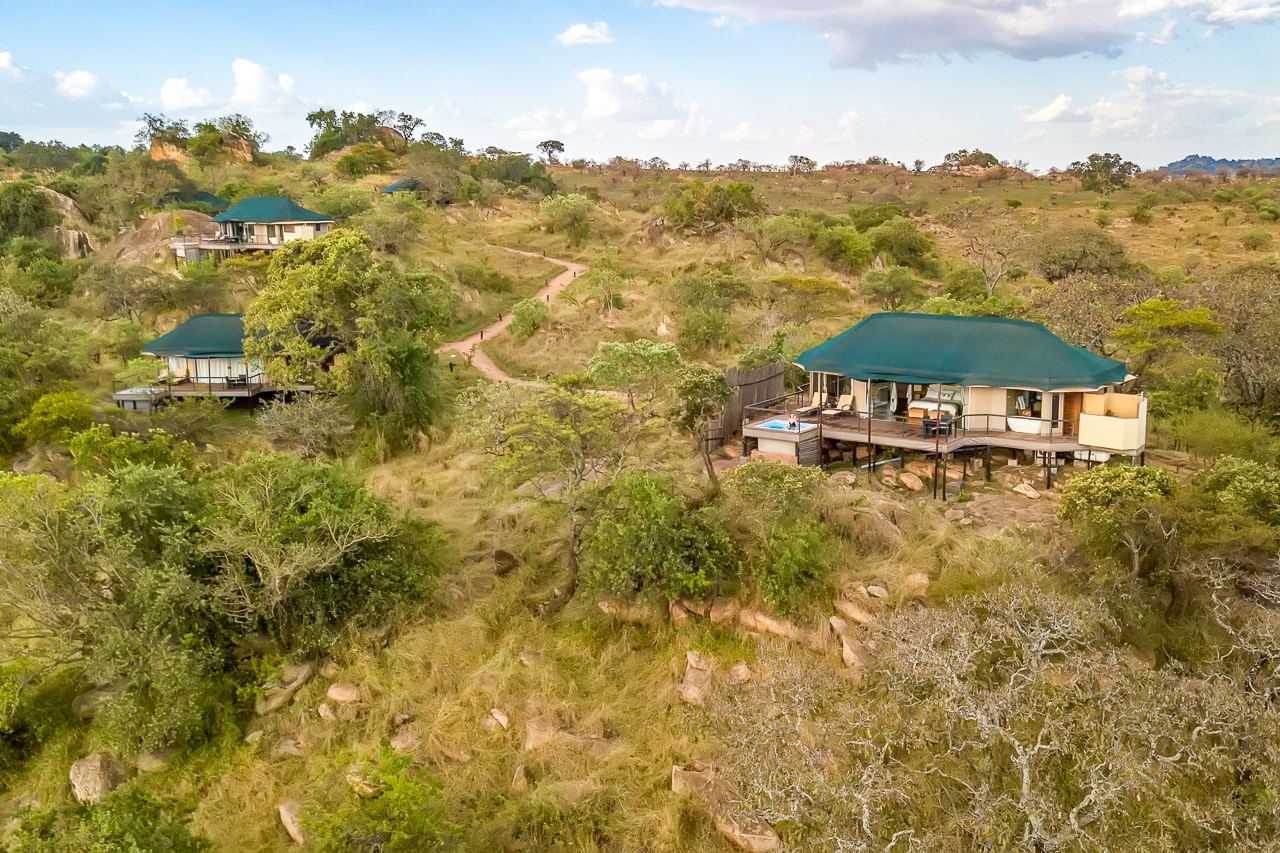
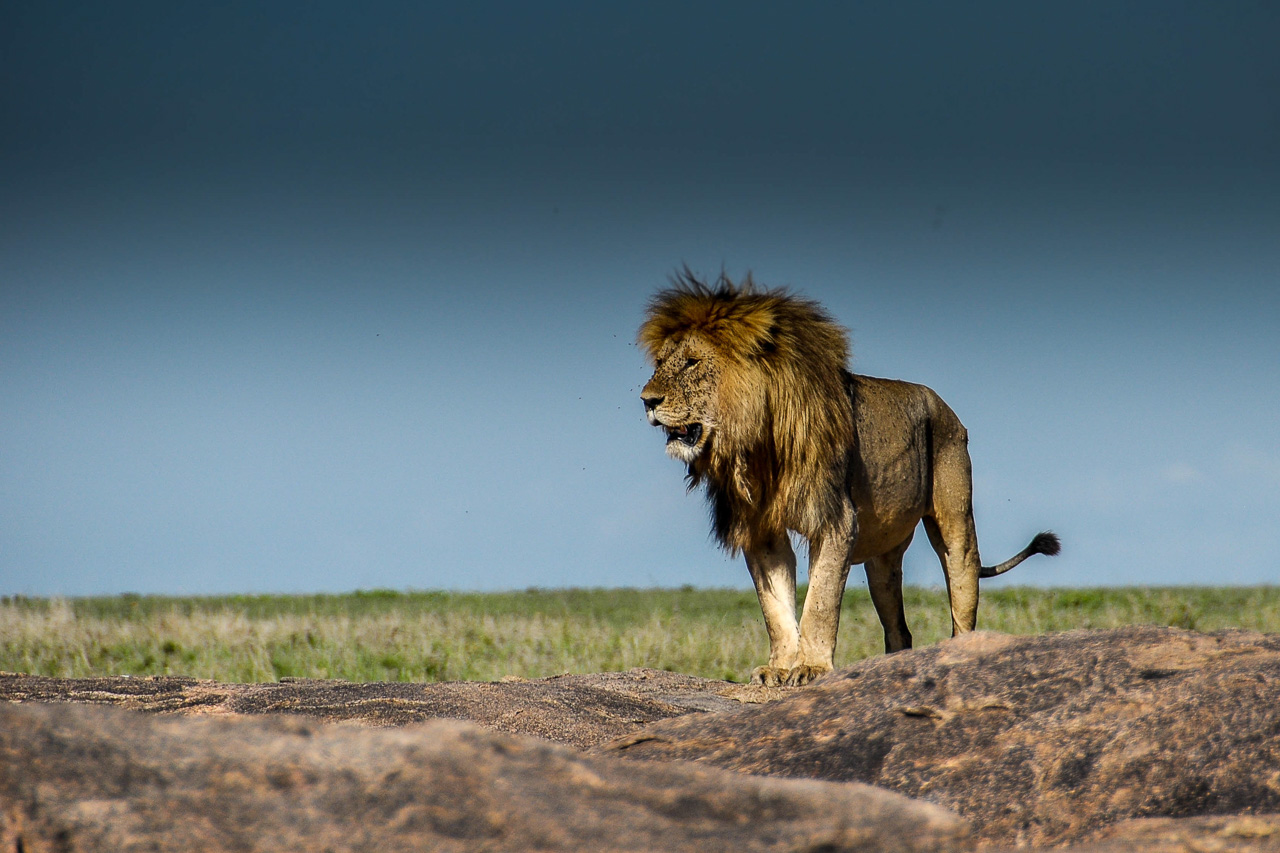
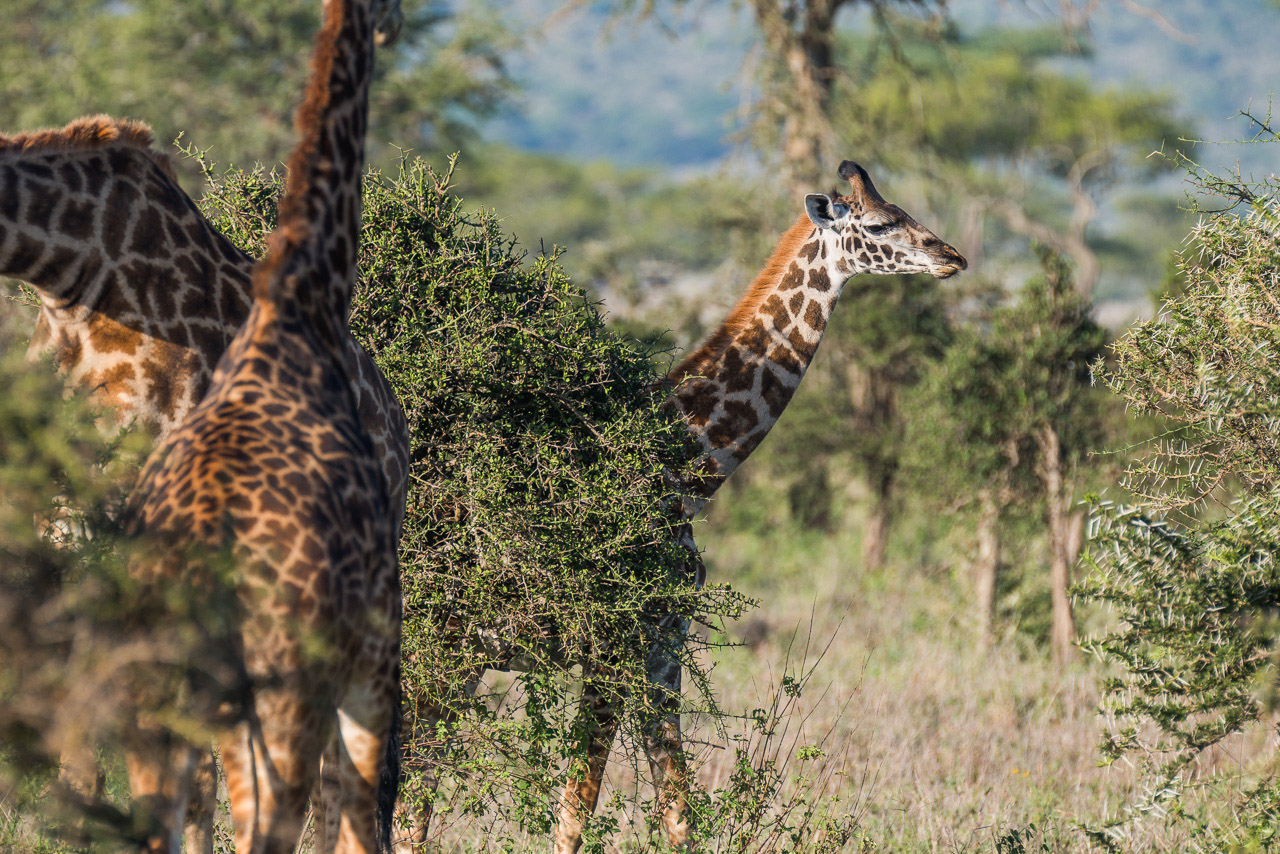
Accommodation
Kurio Hills offers 15 suite tents that were carefully positioned amongst the large boulders of Kogakuria Kopjes. The room have large glass fronts and impressive views over the gentle grassed slopes and open woodland of Northern Serengeti. The suites are large and include en-suite bathrooms with bathtub, inside and outside shower, lounge and a terrasse with small plunge pool.
Public areas made up of three tents housing a combined lounge and bar area, an inside and outside dining area and the reception area and gift shop. The outside deck is large and offers an outside lounge area, an open fireplace and the possibility to have dinner under the stars on these warm evenings. A swimming pool with sundeck is available as well.
The closest airstrip is Kogatende.

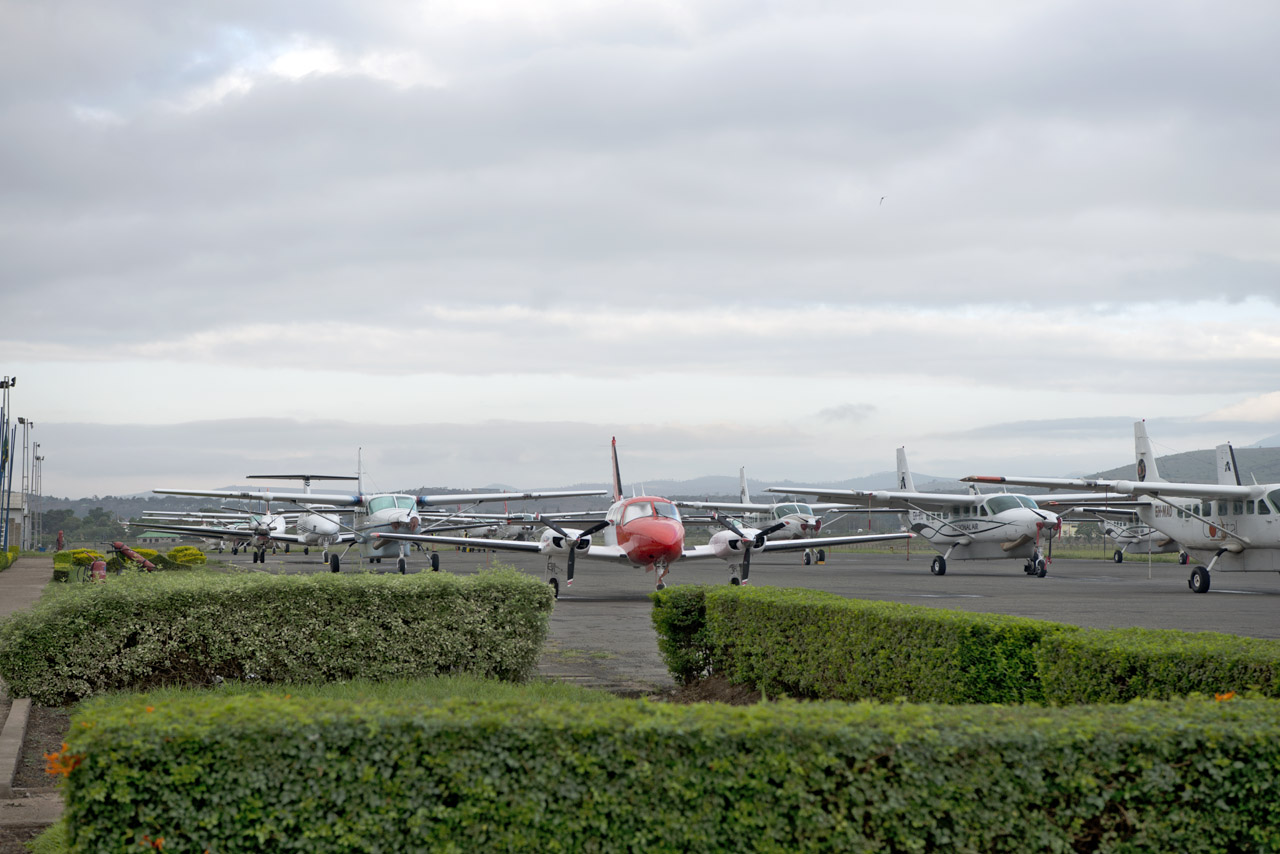
Basic Information
Individual trip with private guide and private 4x4 vehicle for Arusha - Tarangire - Manyara - Ngorongoro - Serengeti. Activities in these areas will be conducted on a private basis with your own guide and vehicle.
Duration 10 nights. Min 2 guests. Minimum age 8 years. Weight limit of luggage 20 kg. Luggage in one soft bag only.
Includes all transfers from Arusha to the hotels/camps to Arusha
- Arusha Villa: Standard Room. Breakfast.
- Mpingo Ridge: Standard Room. All meals, drinks (except premier brands), laundry service.
- Gibb's Farm: Standard Room. All meals.
- Siringit Serengeti: Standard Room. All meals, drinks (except premier brands), laundry service.
- Kuria Hills: Standard Room. All meals, drinks (except premier brands), laundry service.
Learn more about these areas











